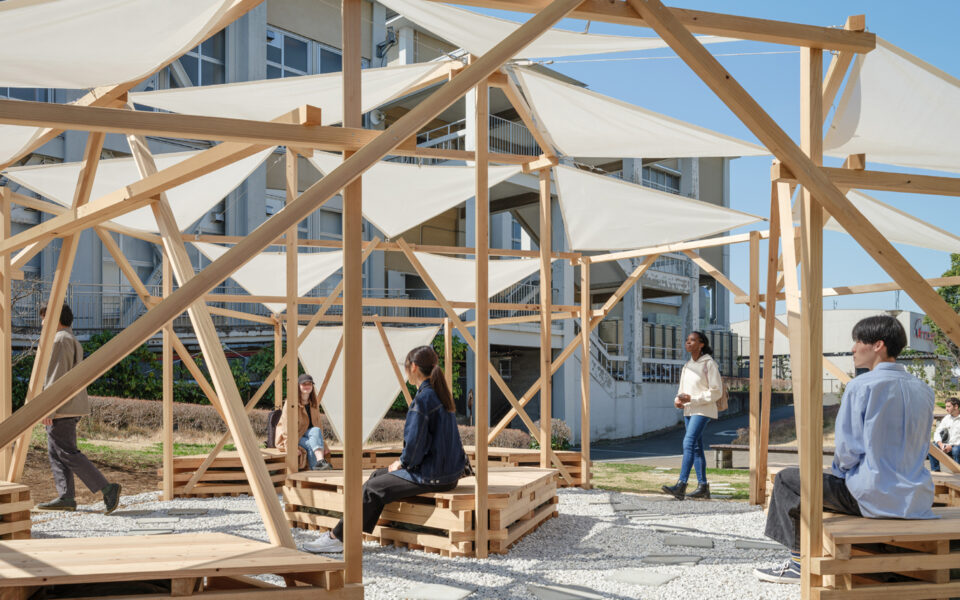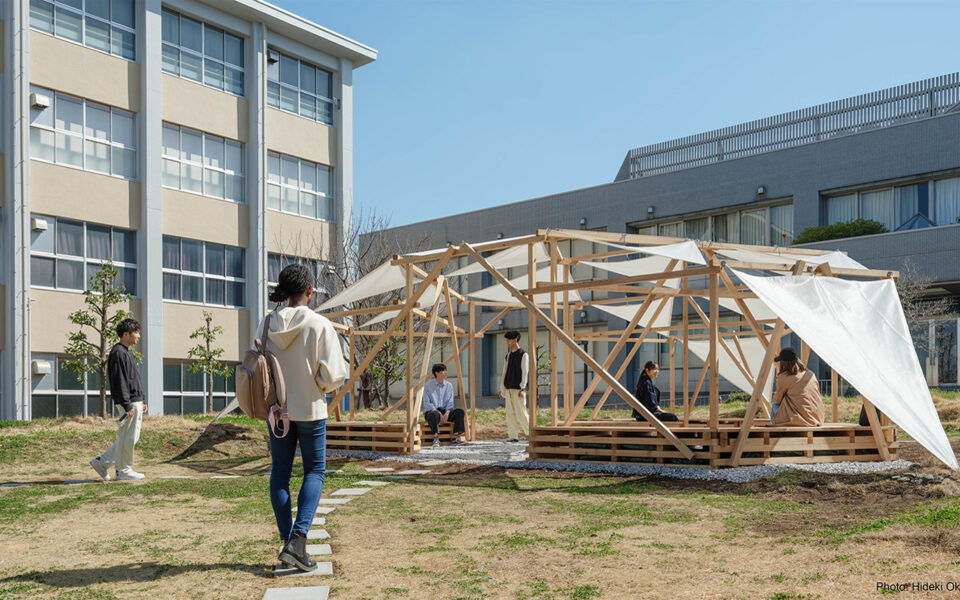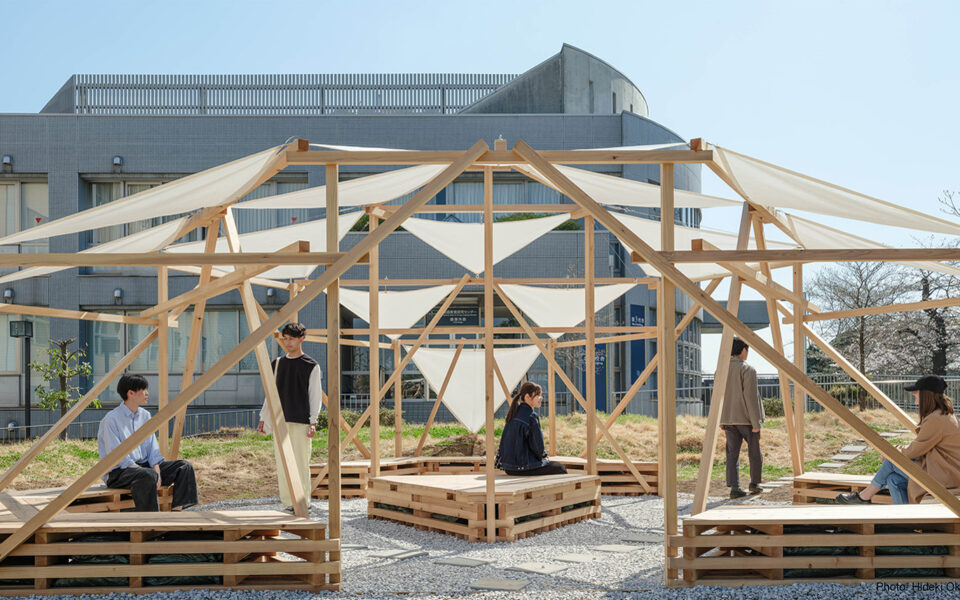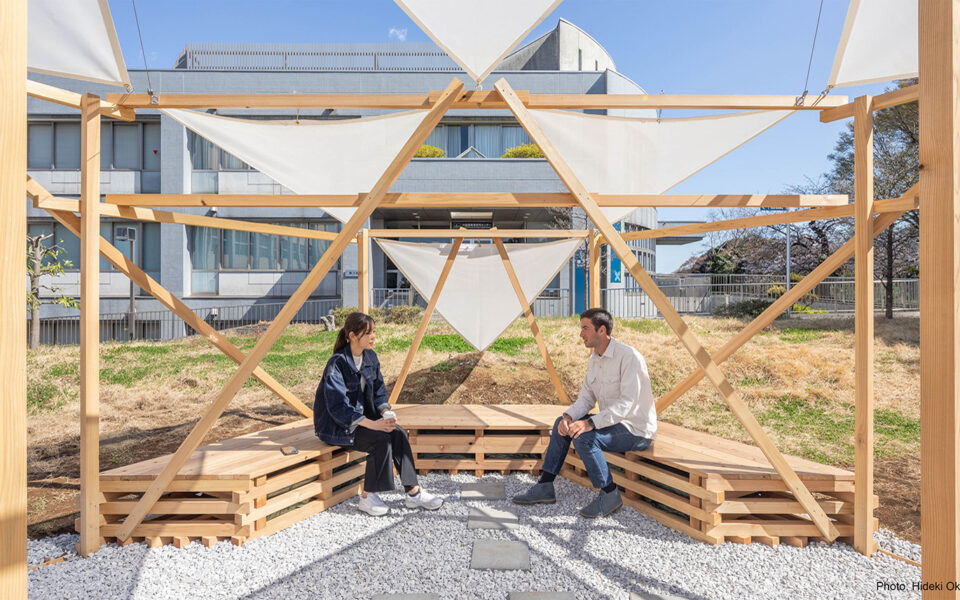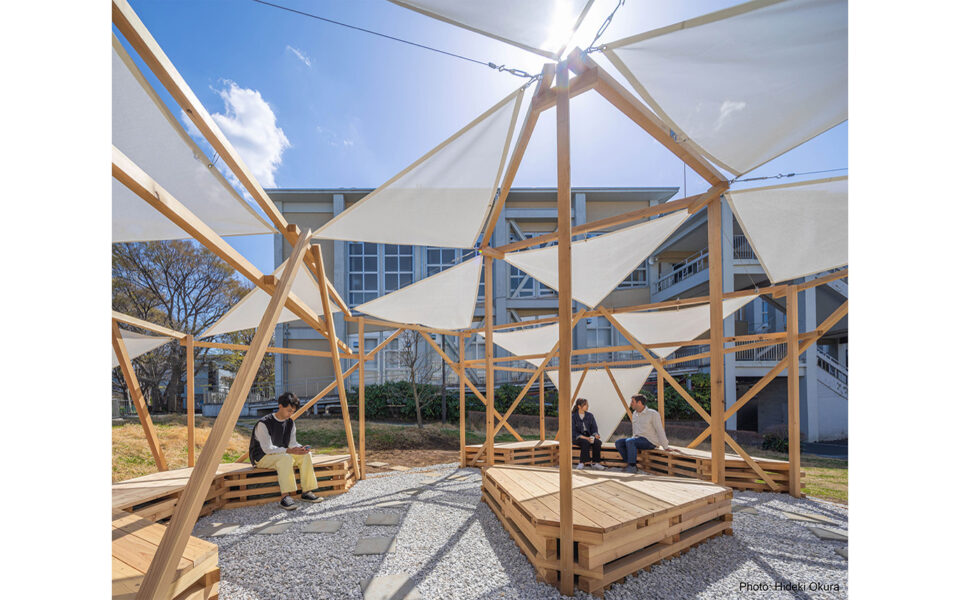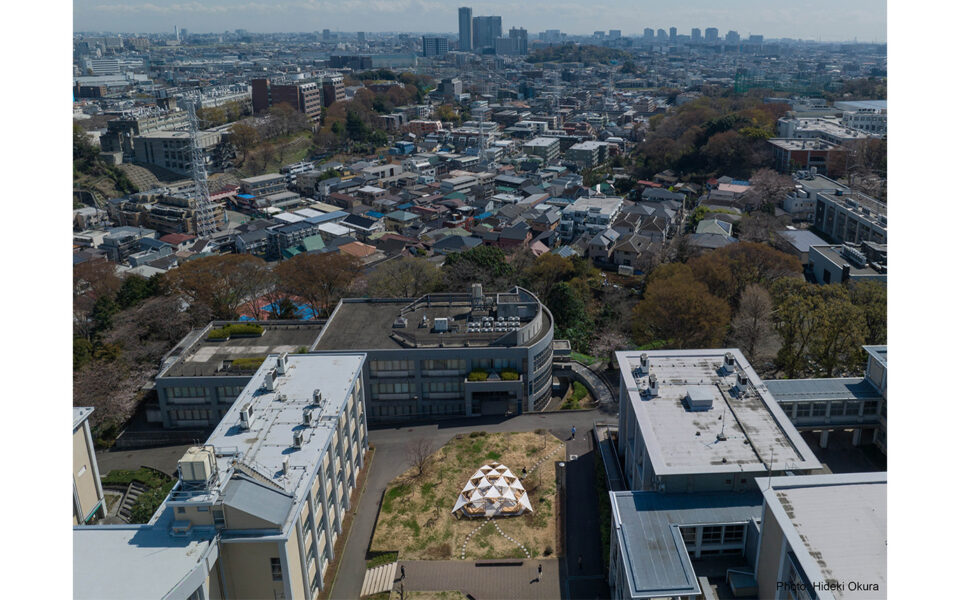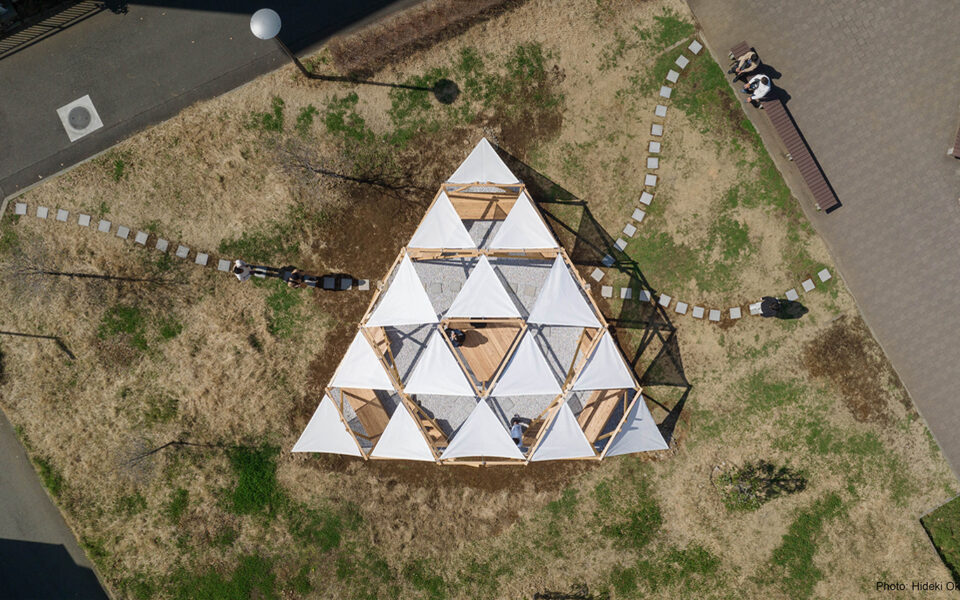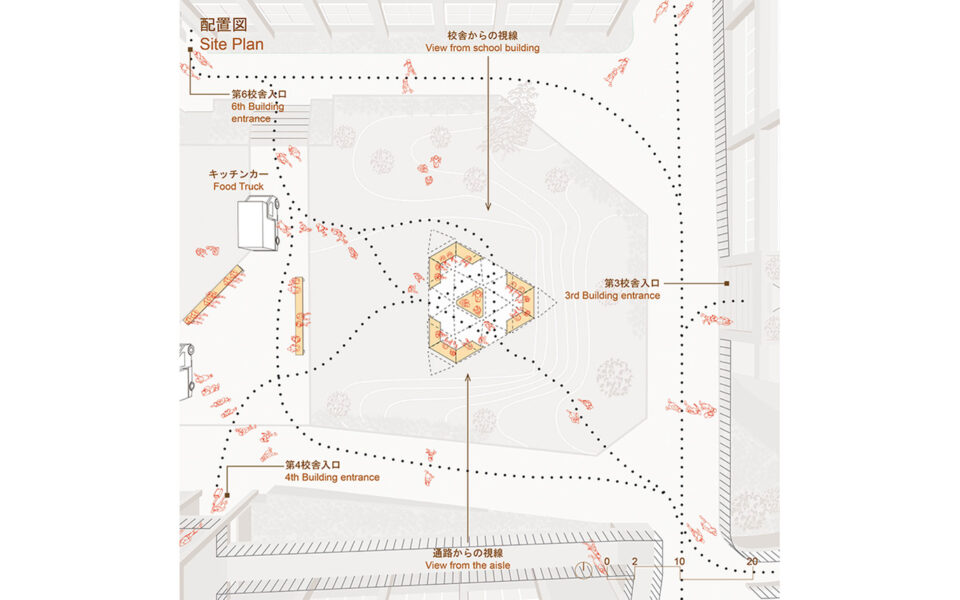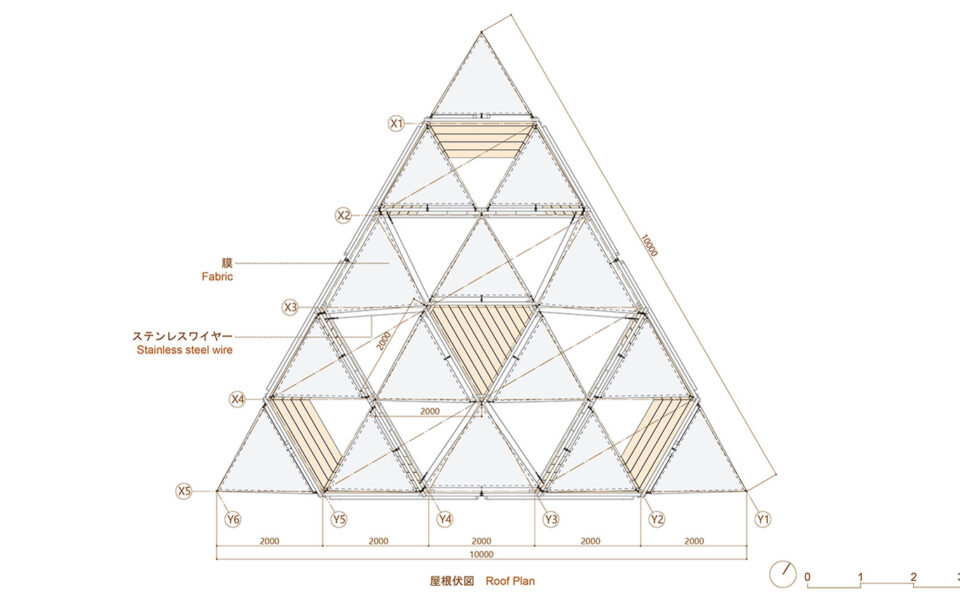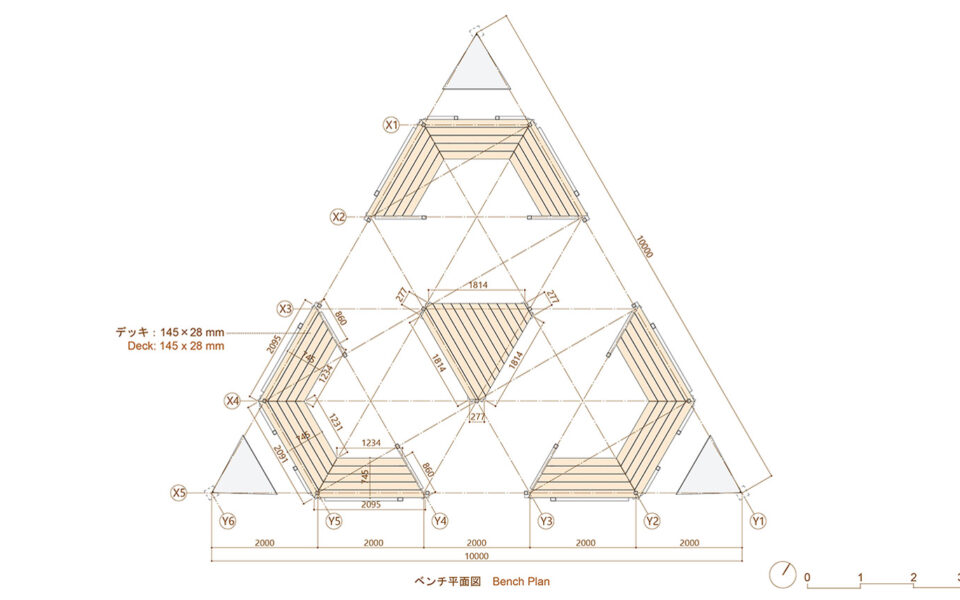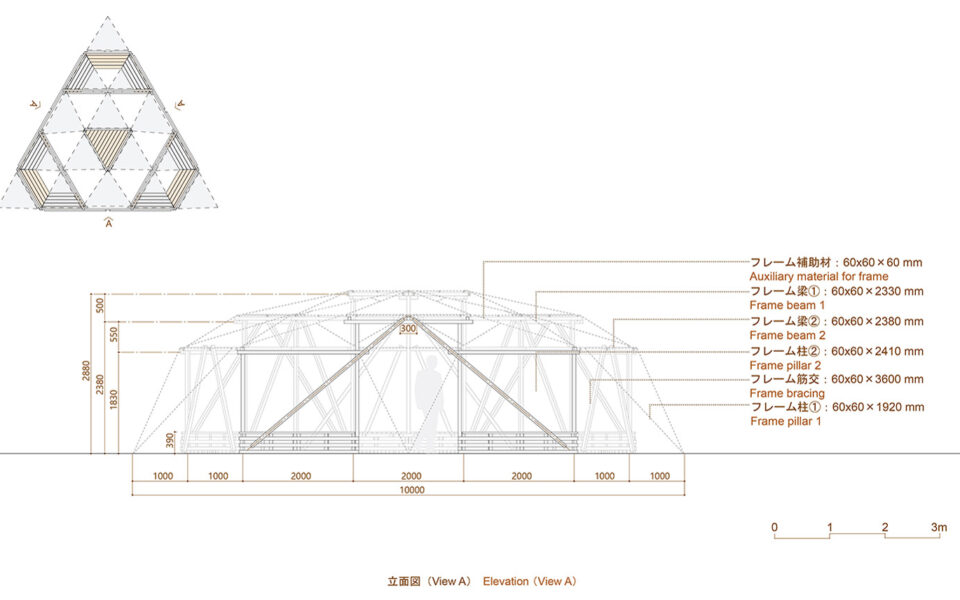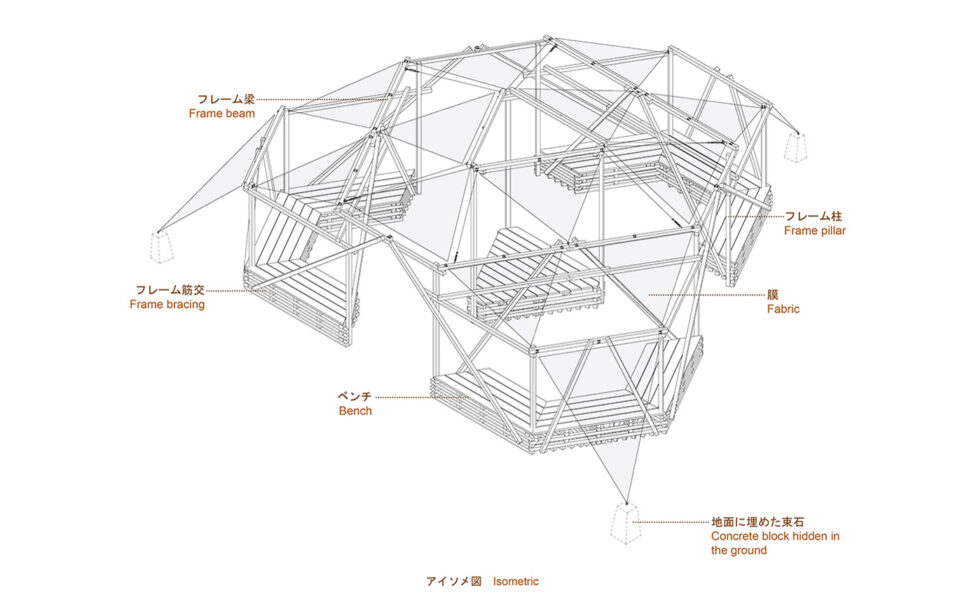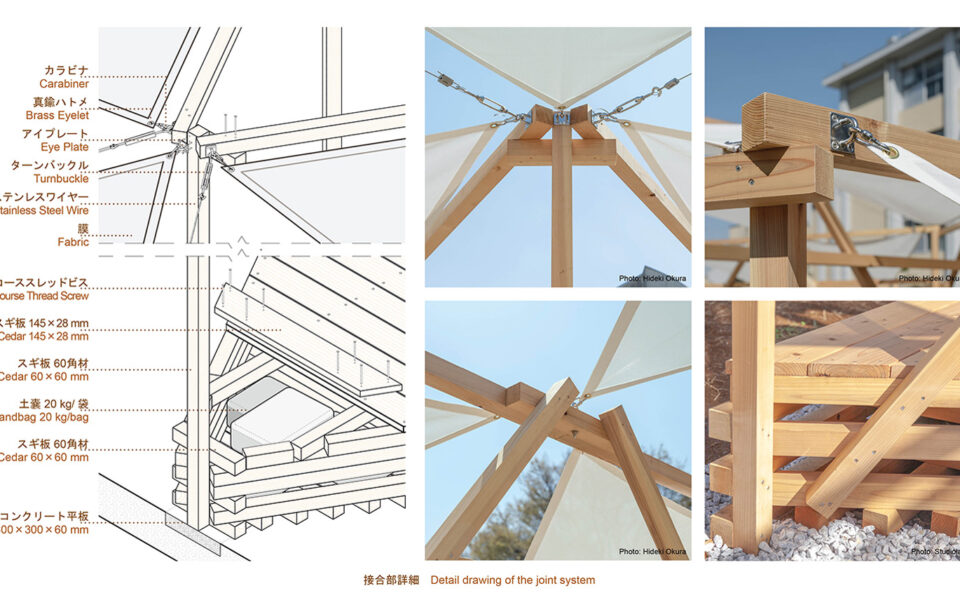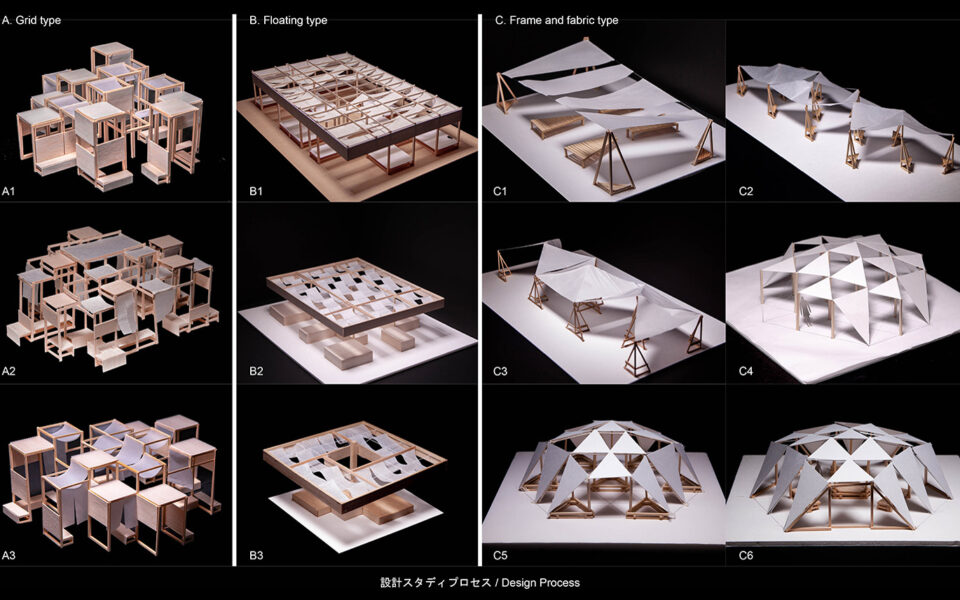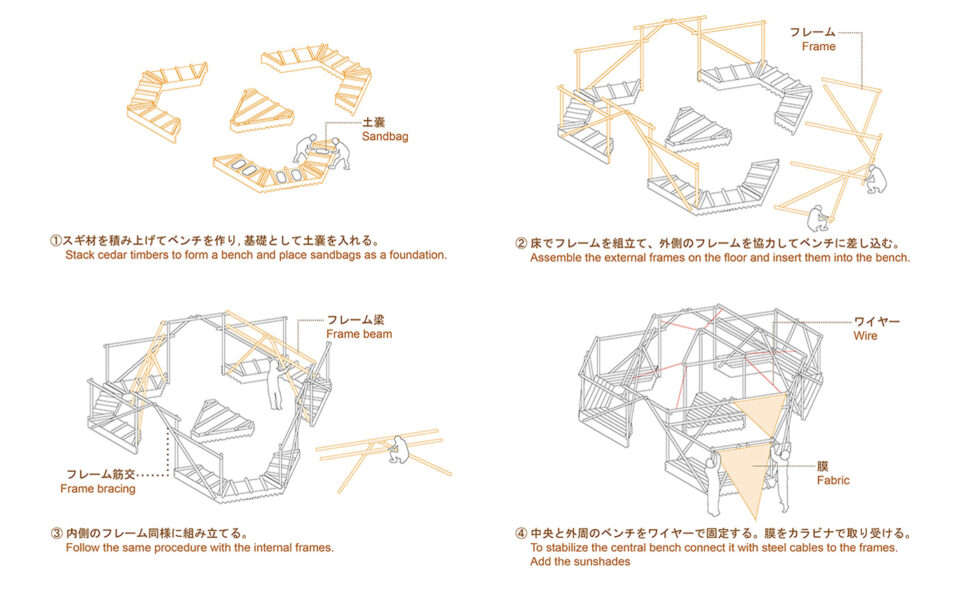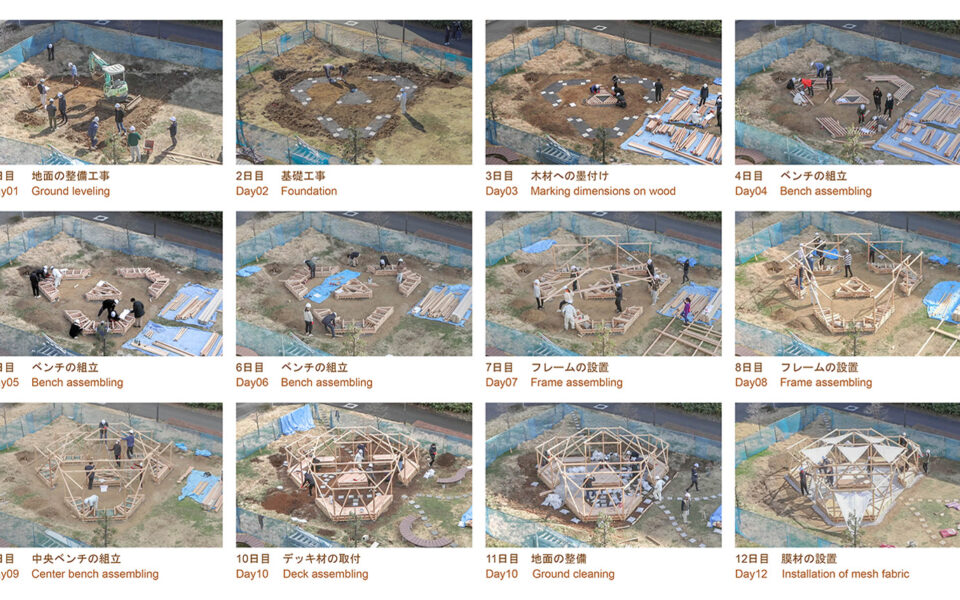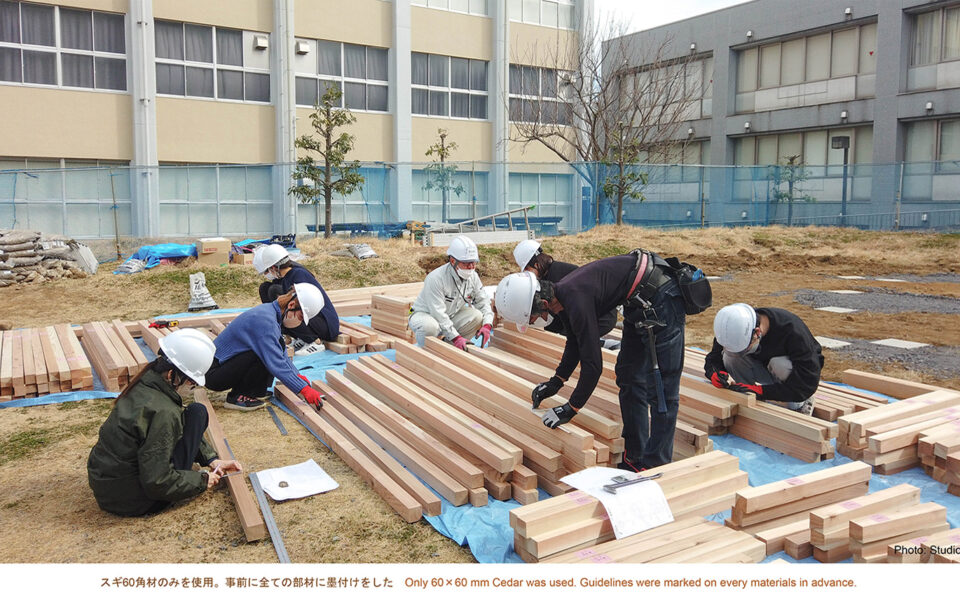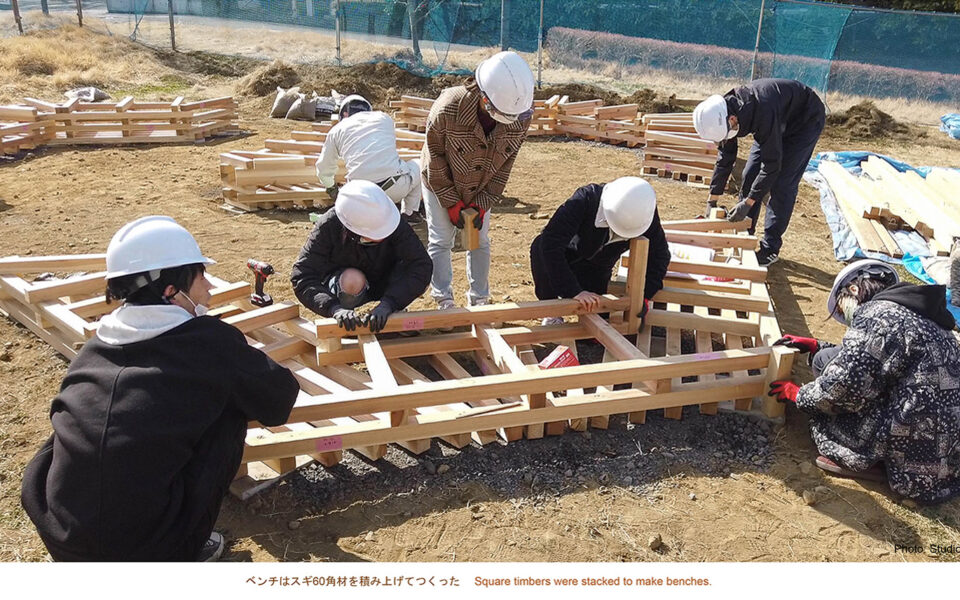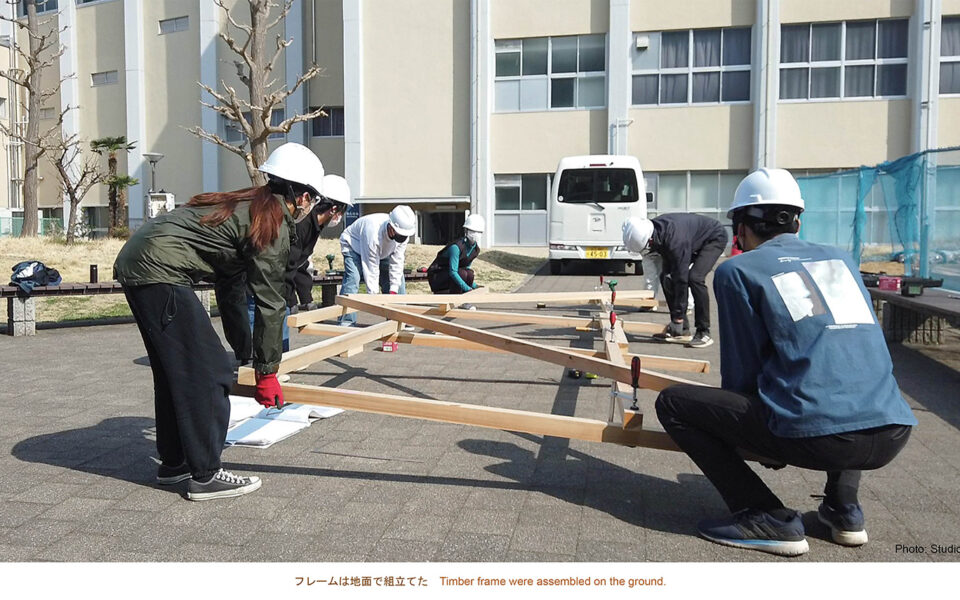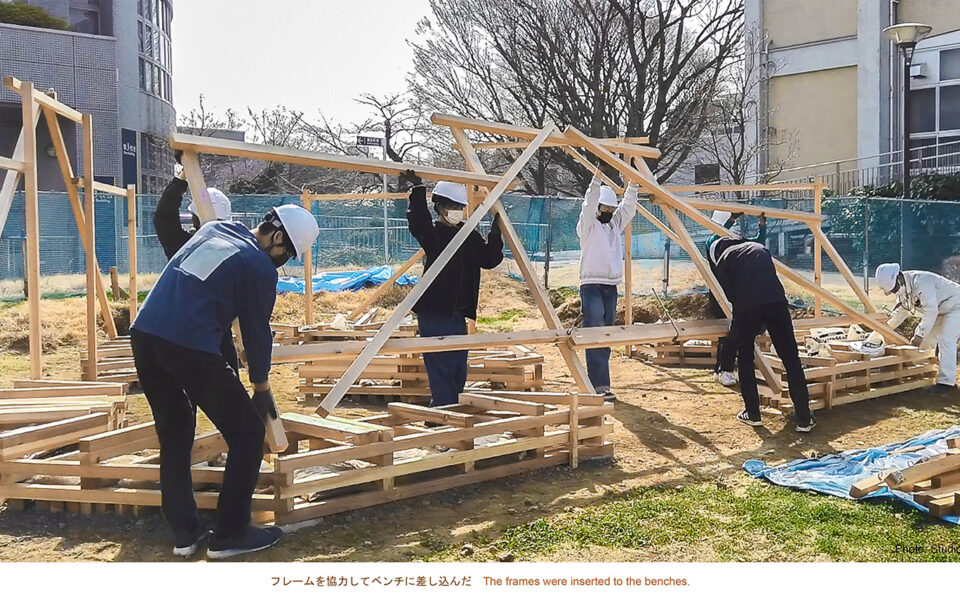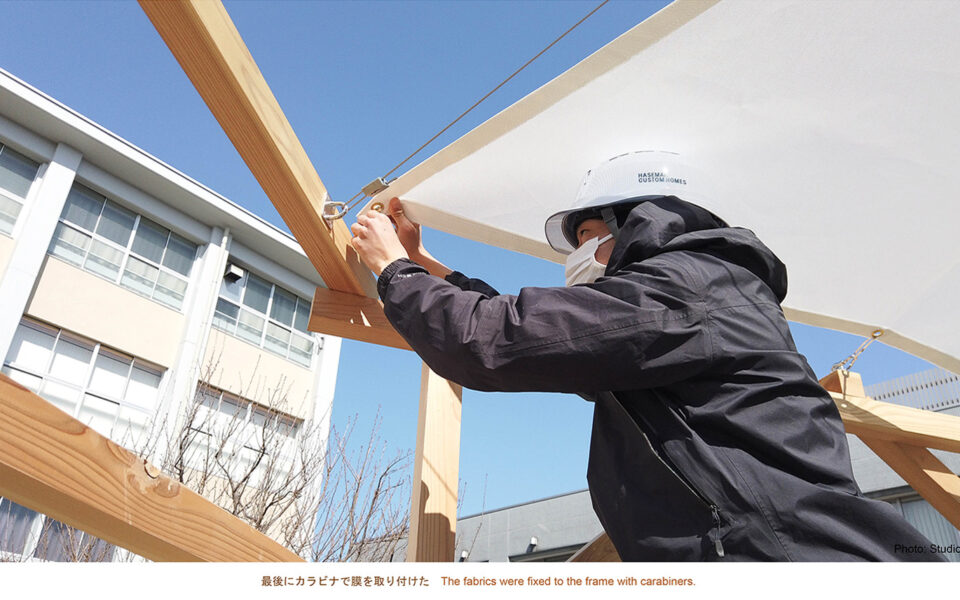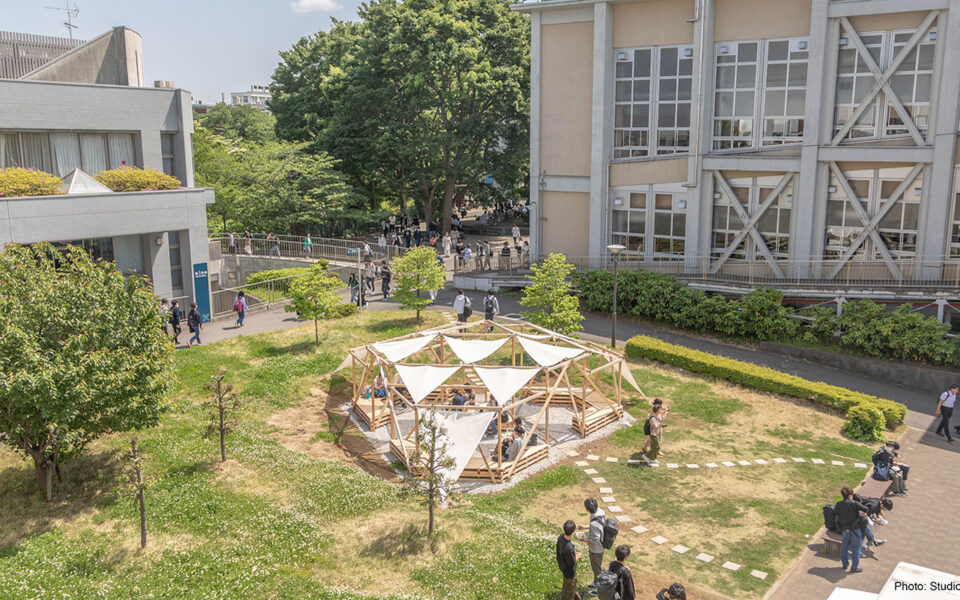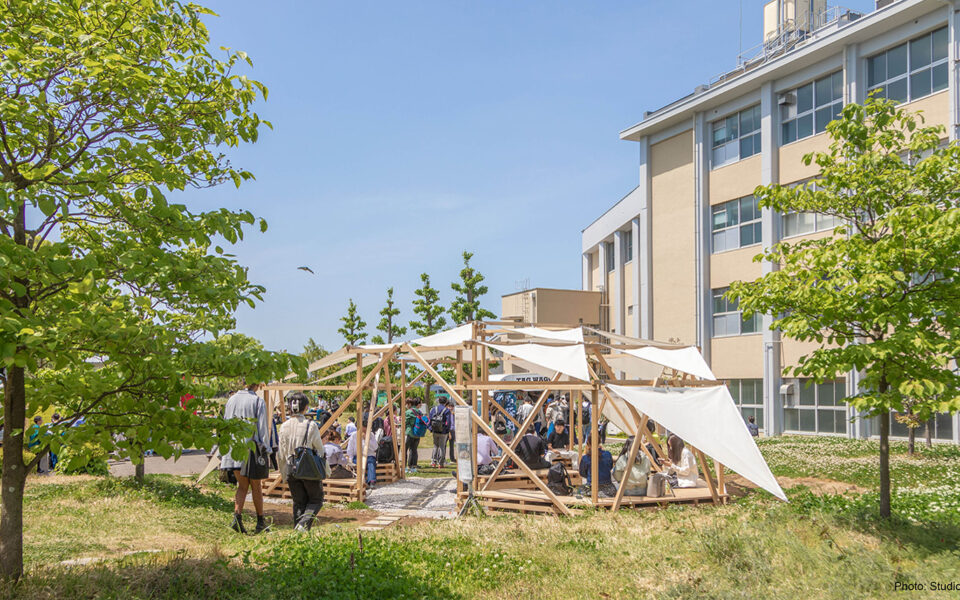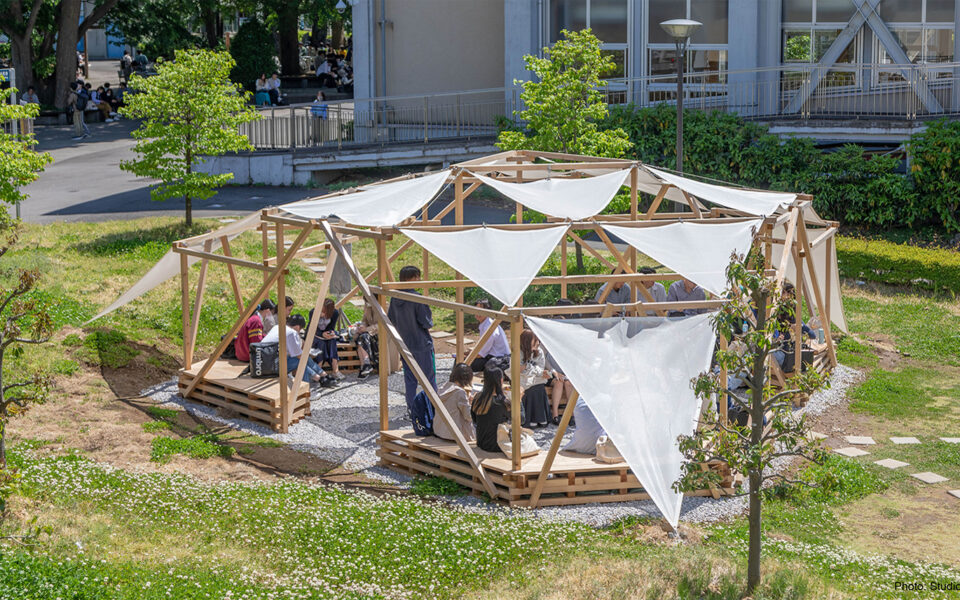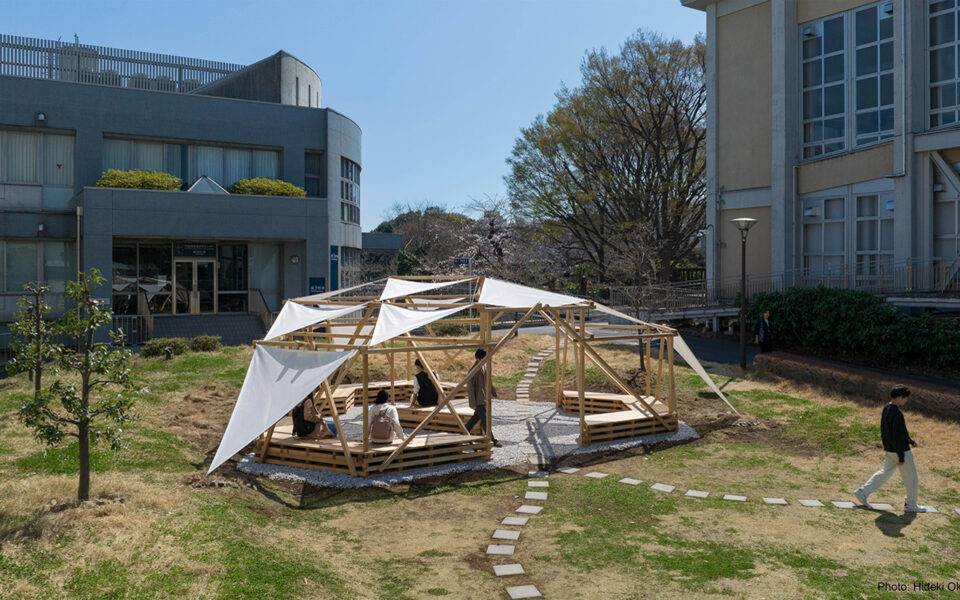Hiyoshi Pavilion
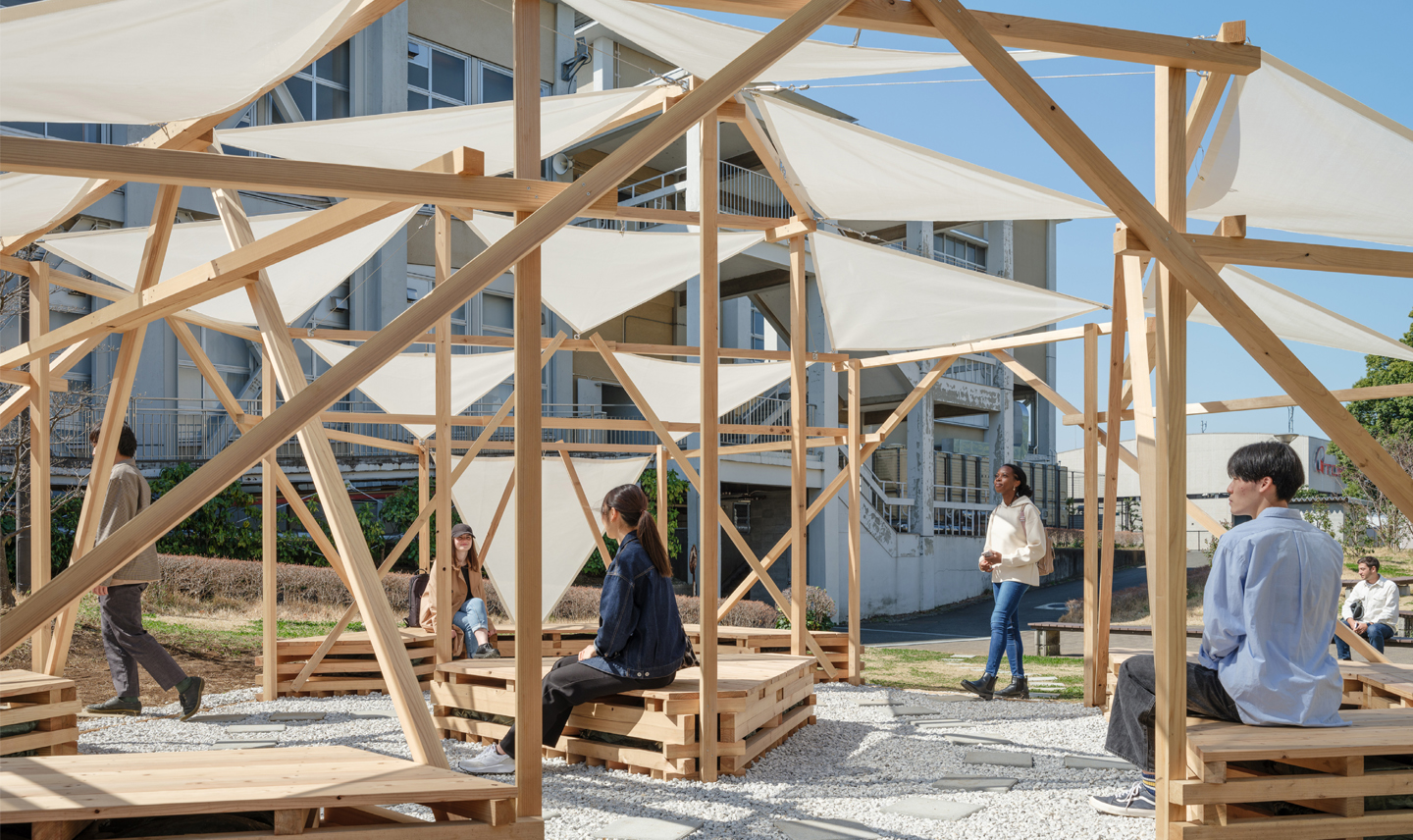
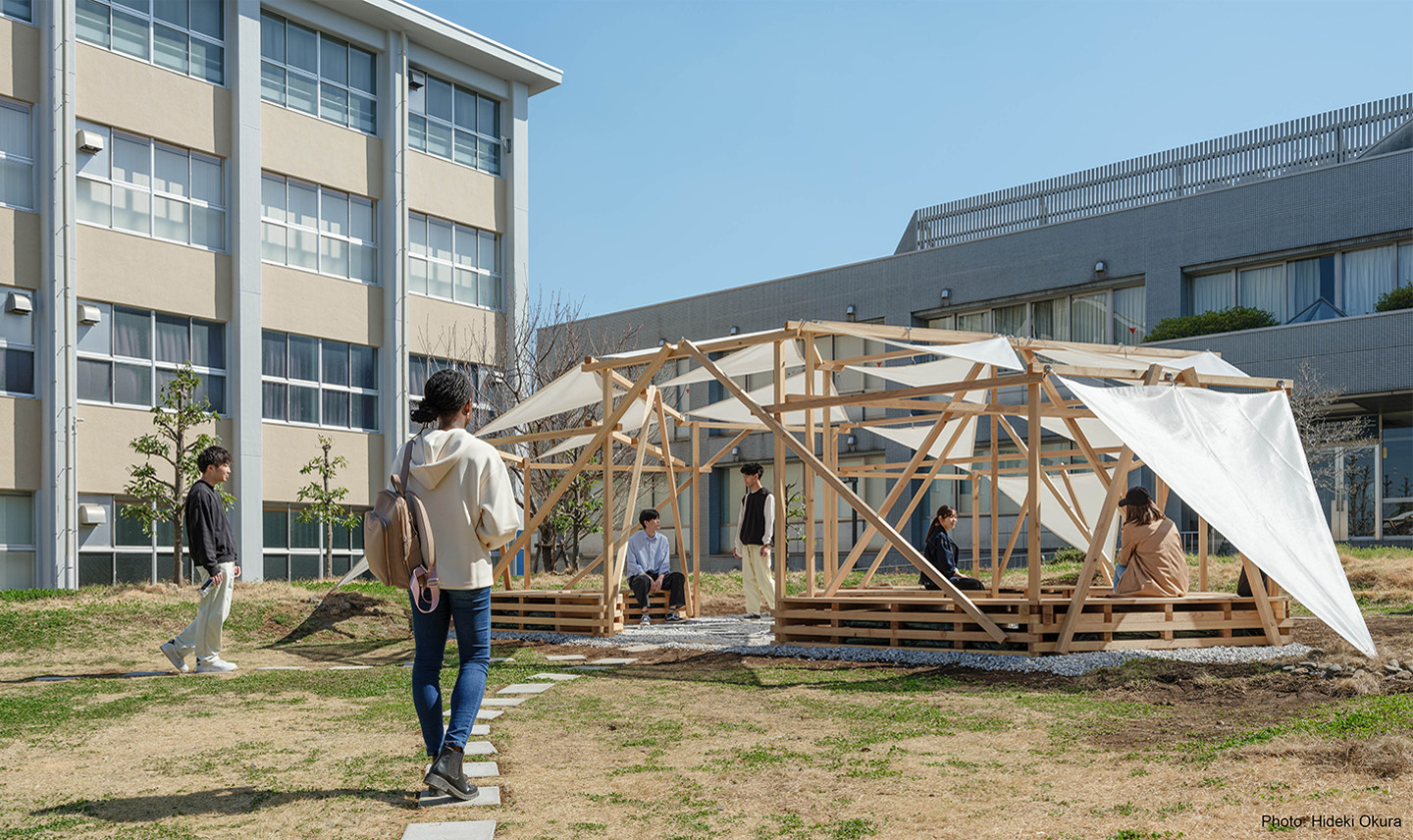
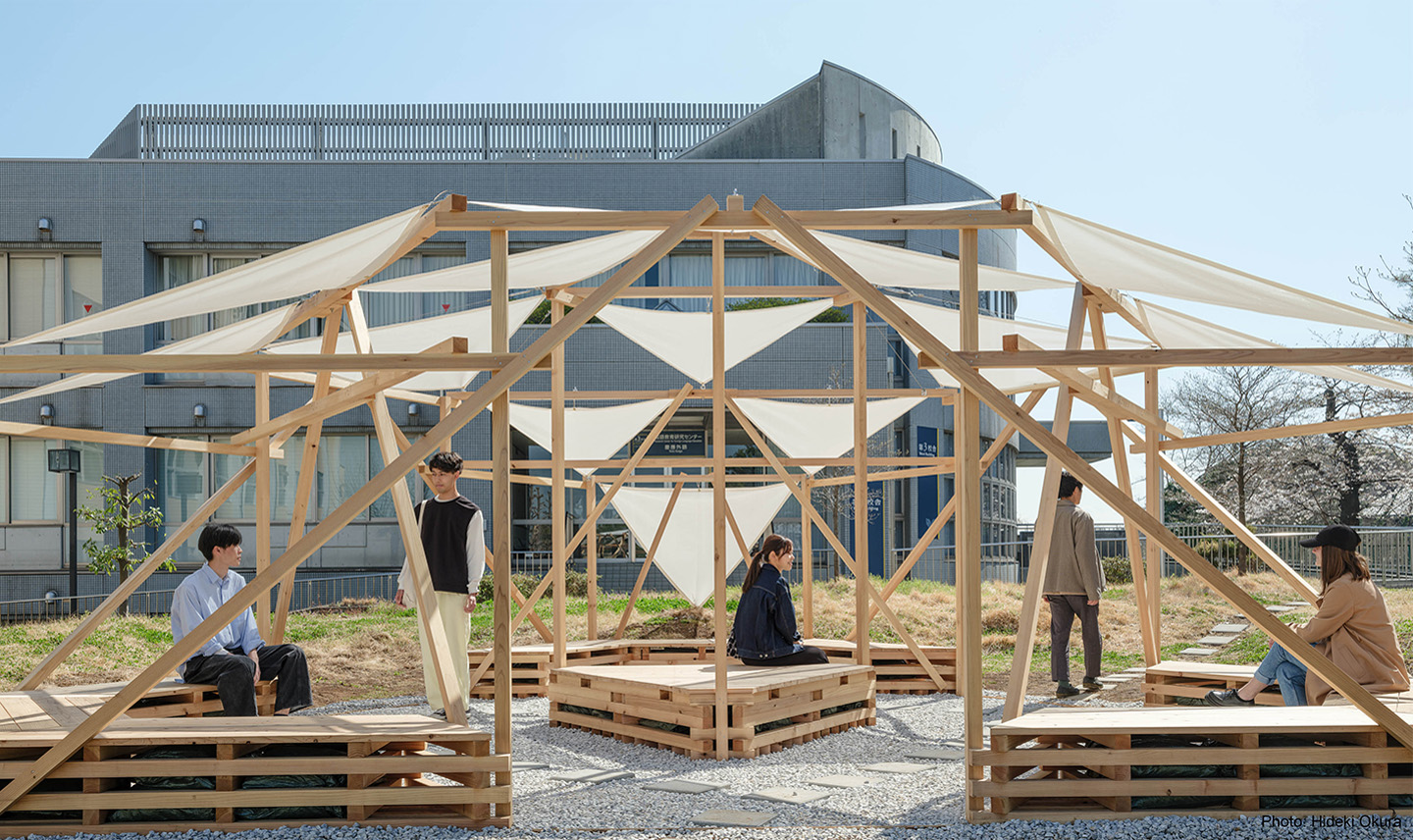
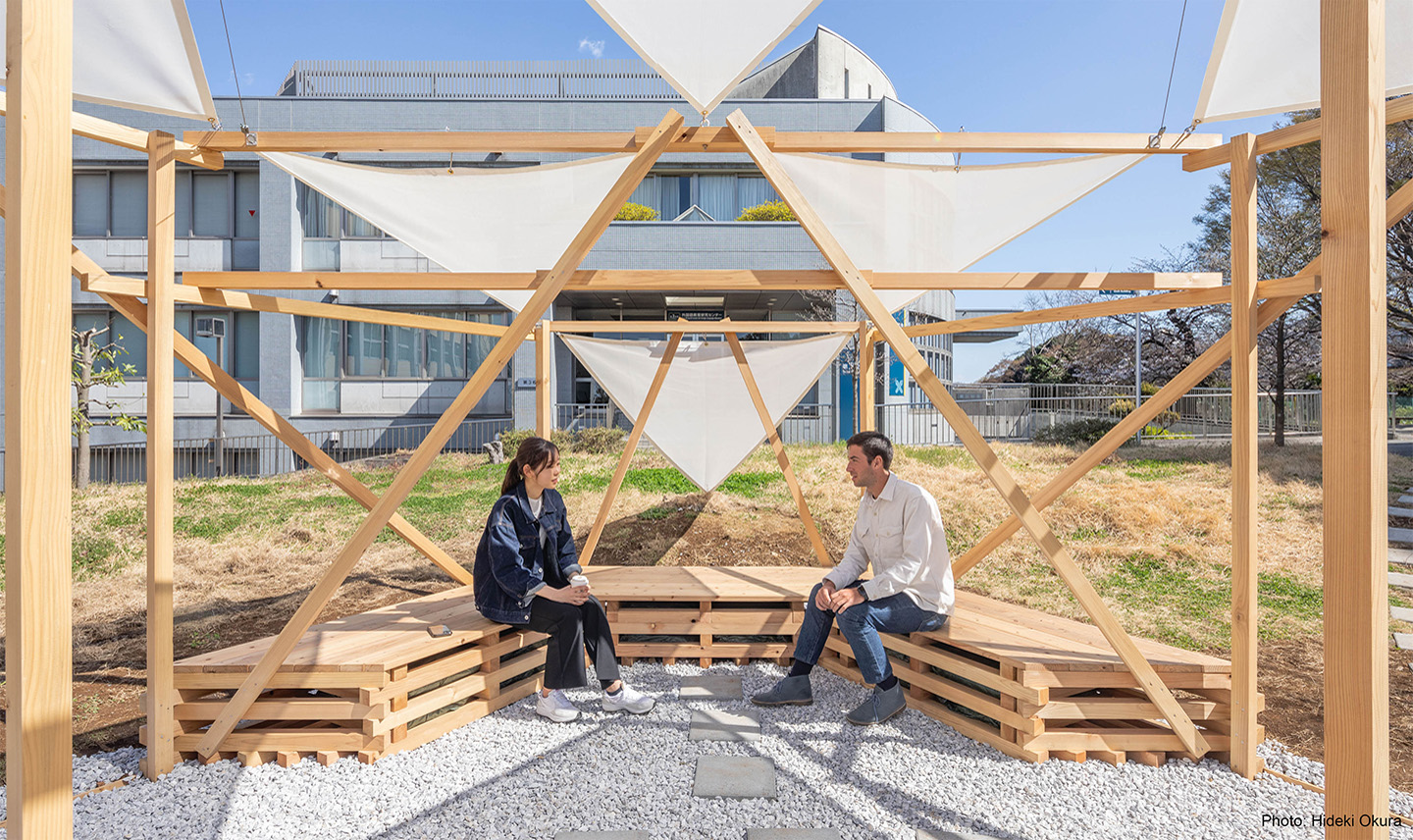
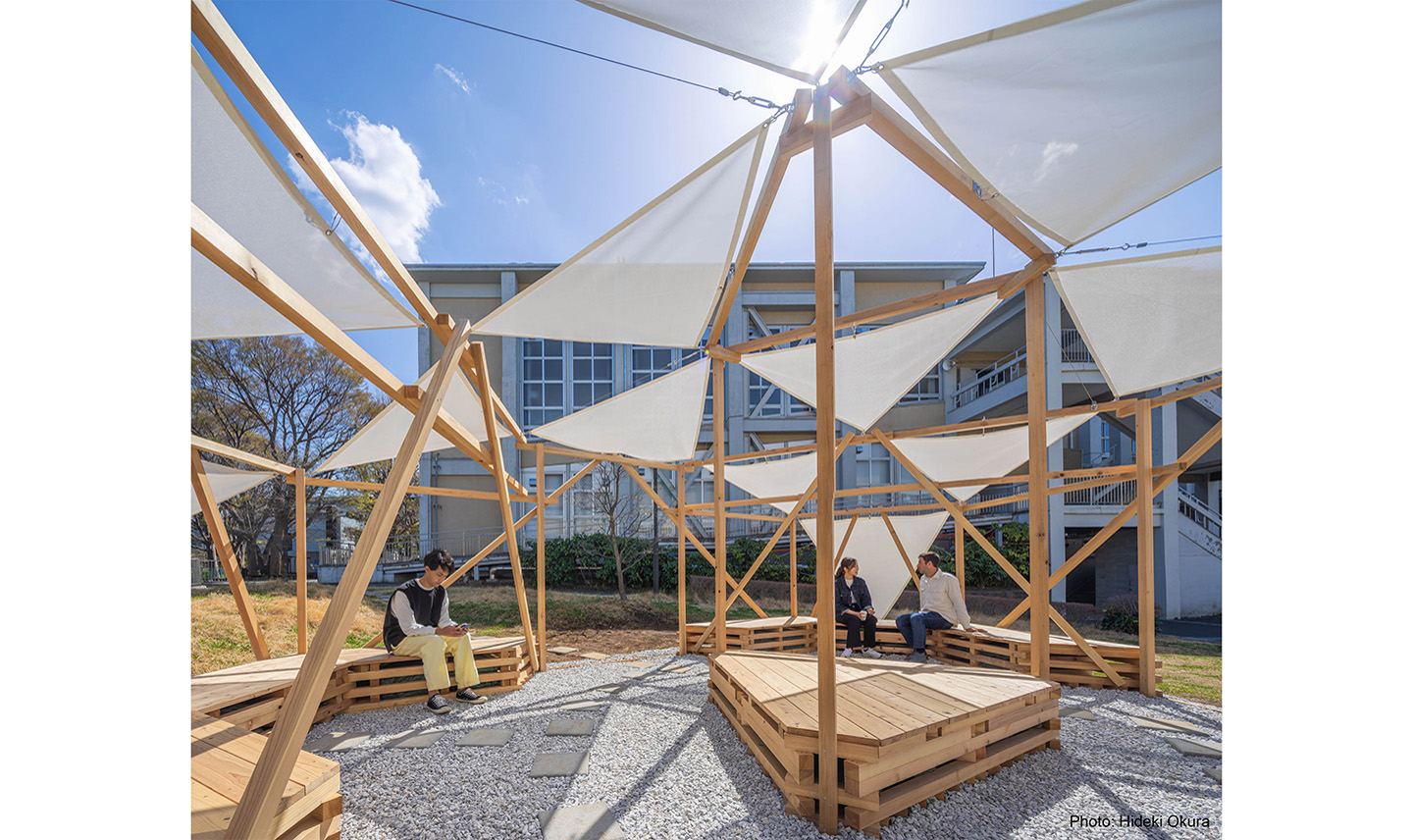
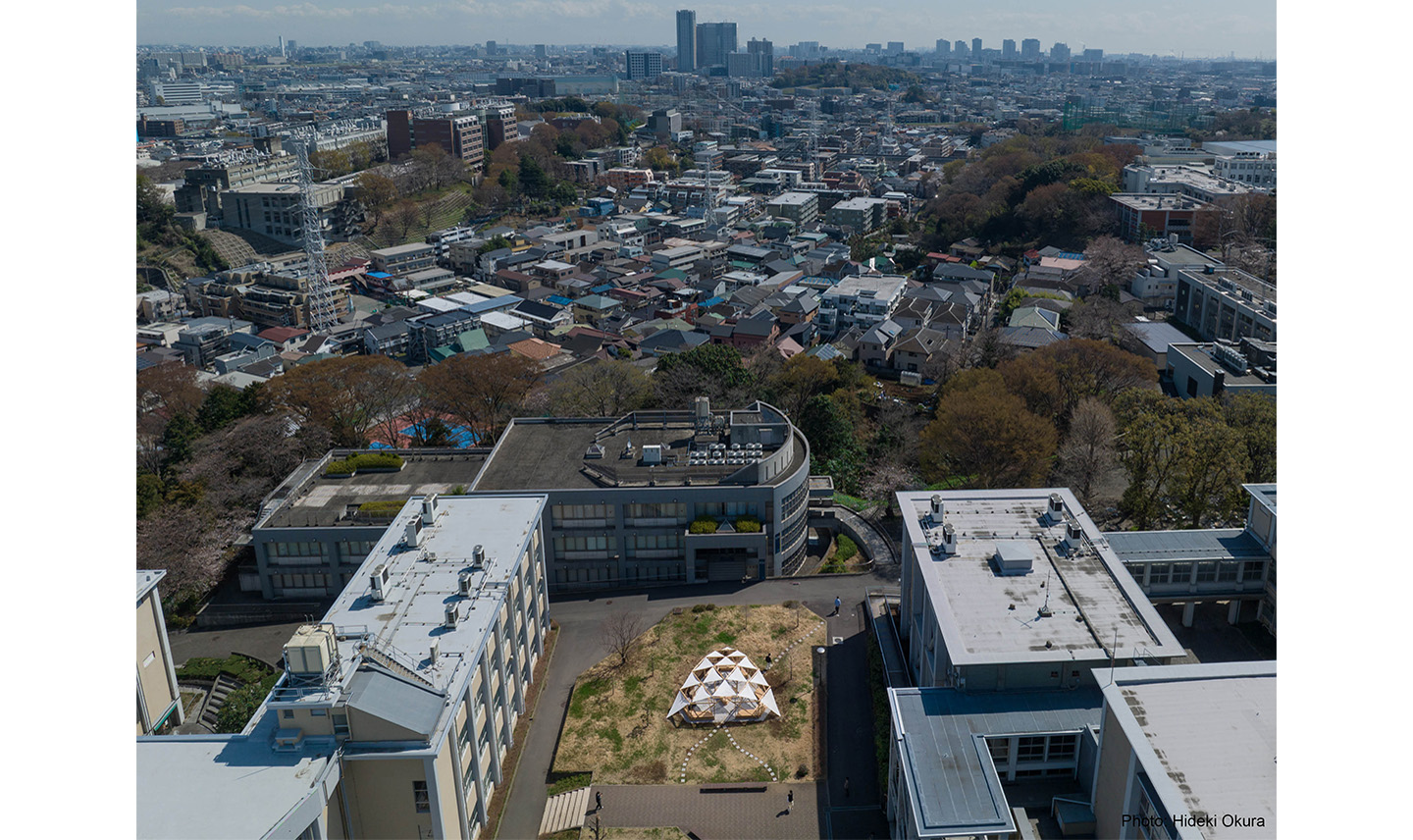
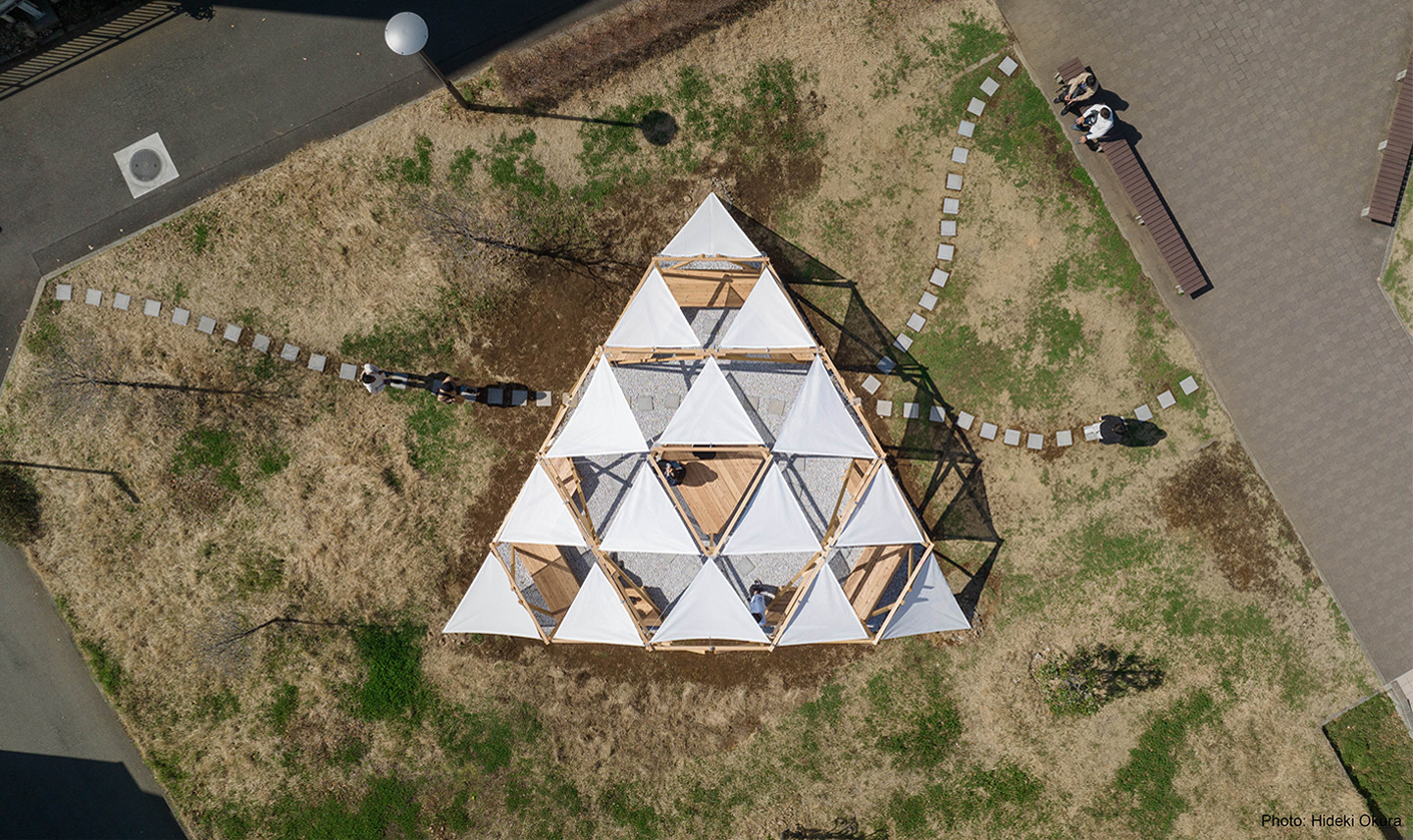
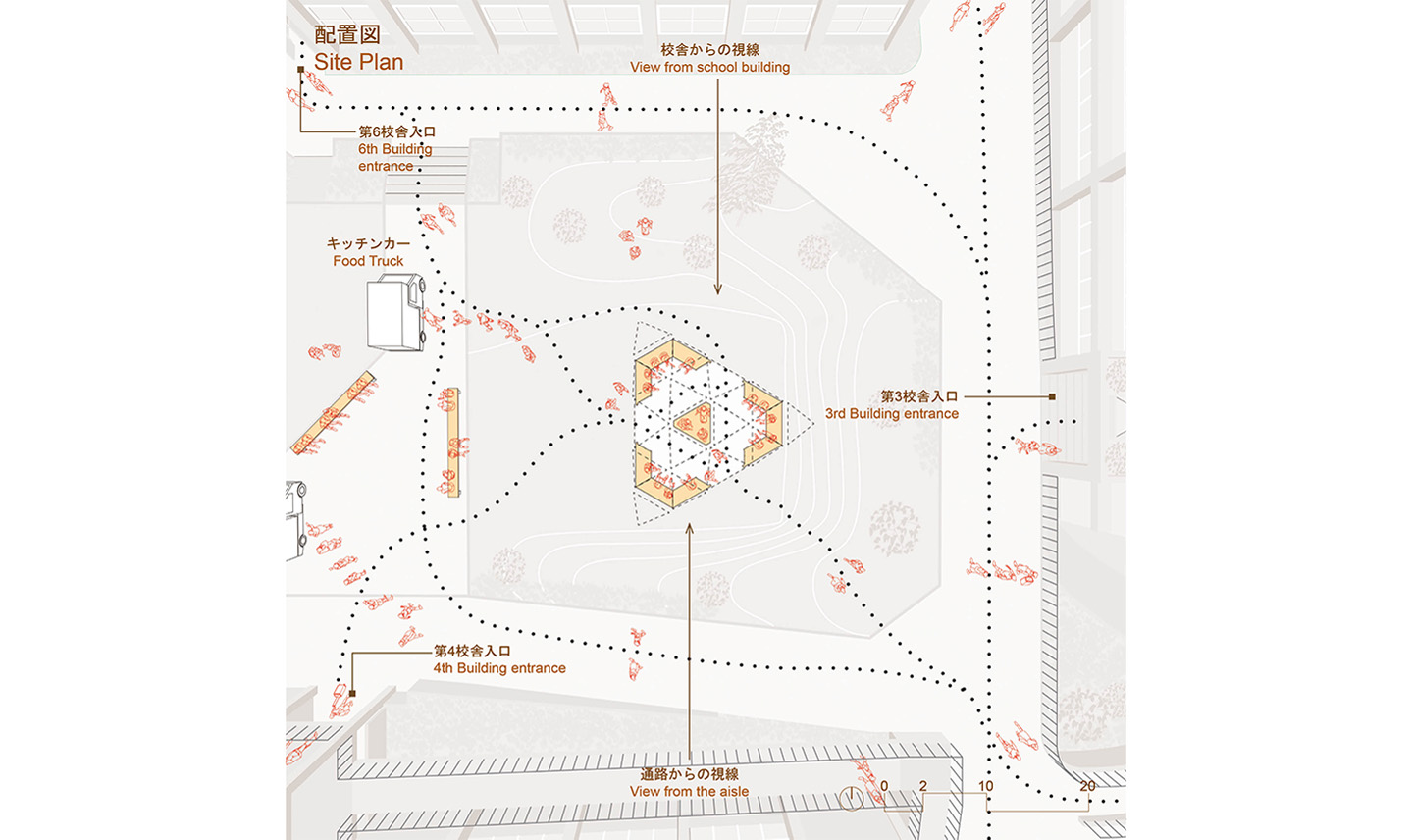
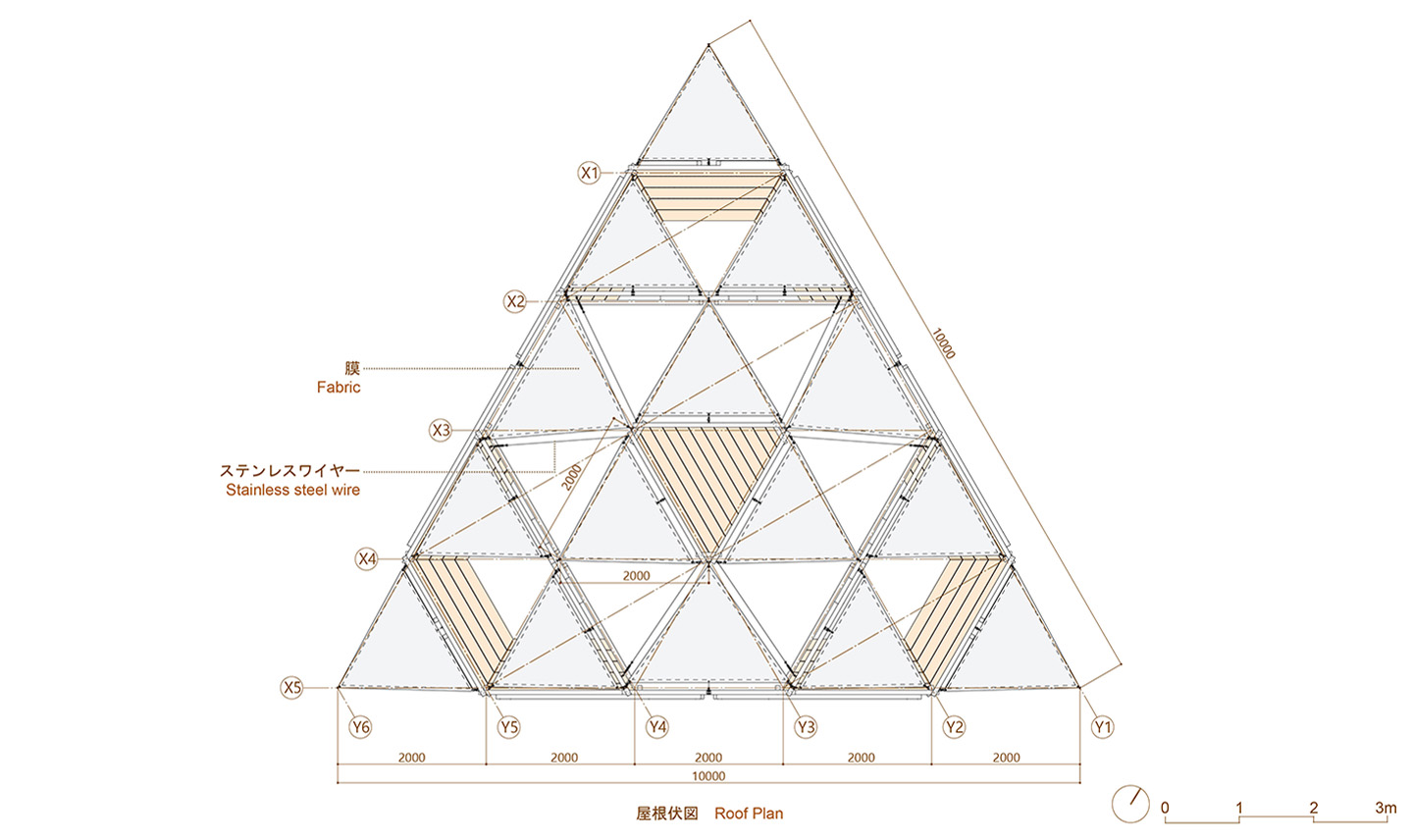
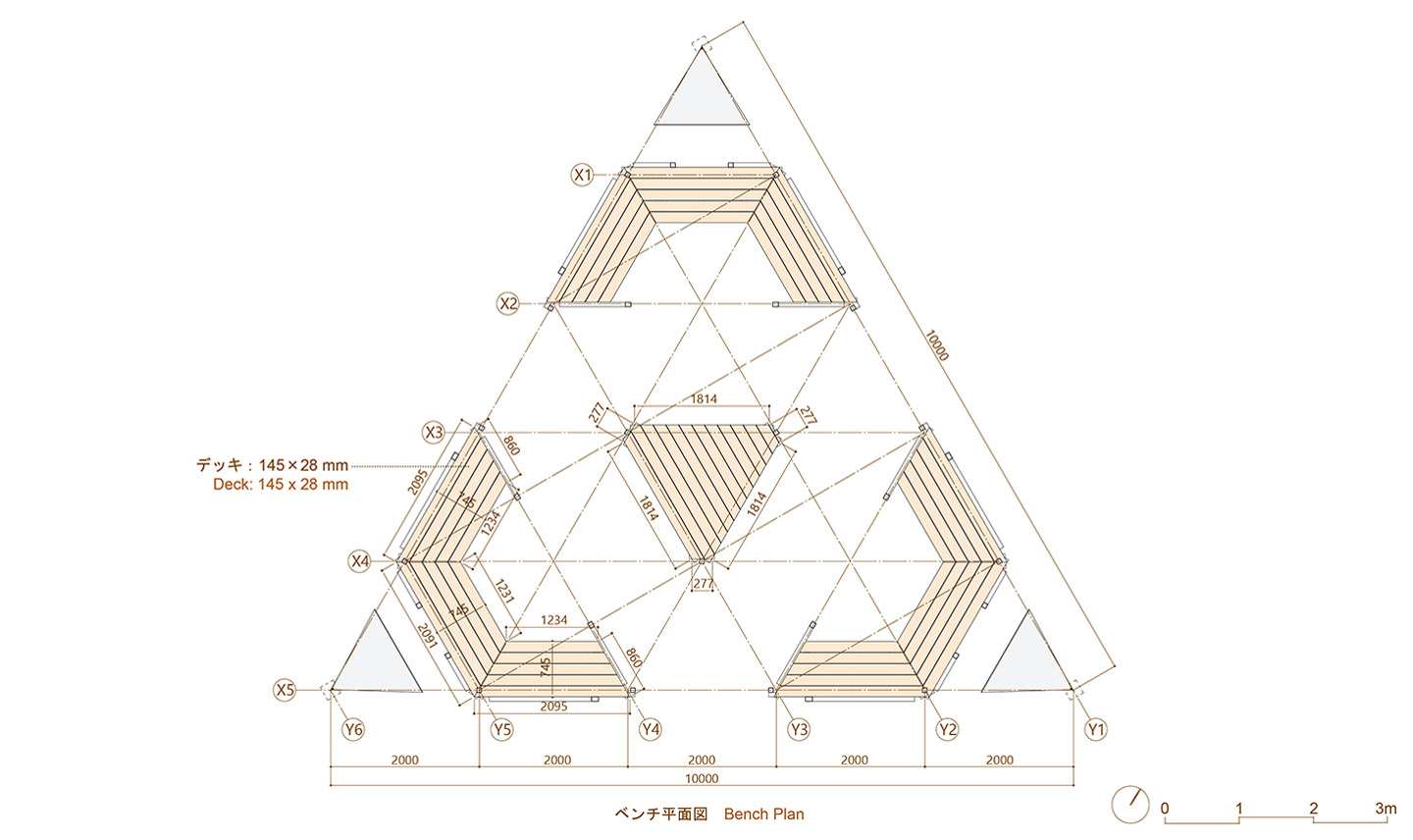
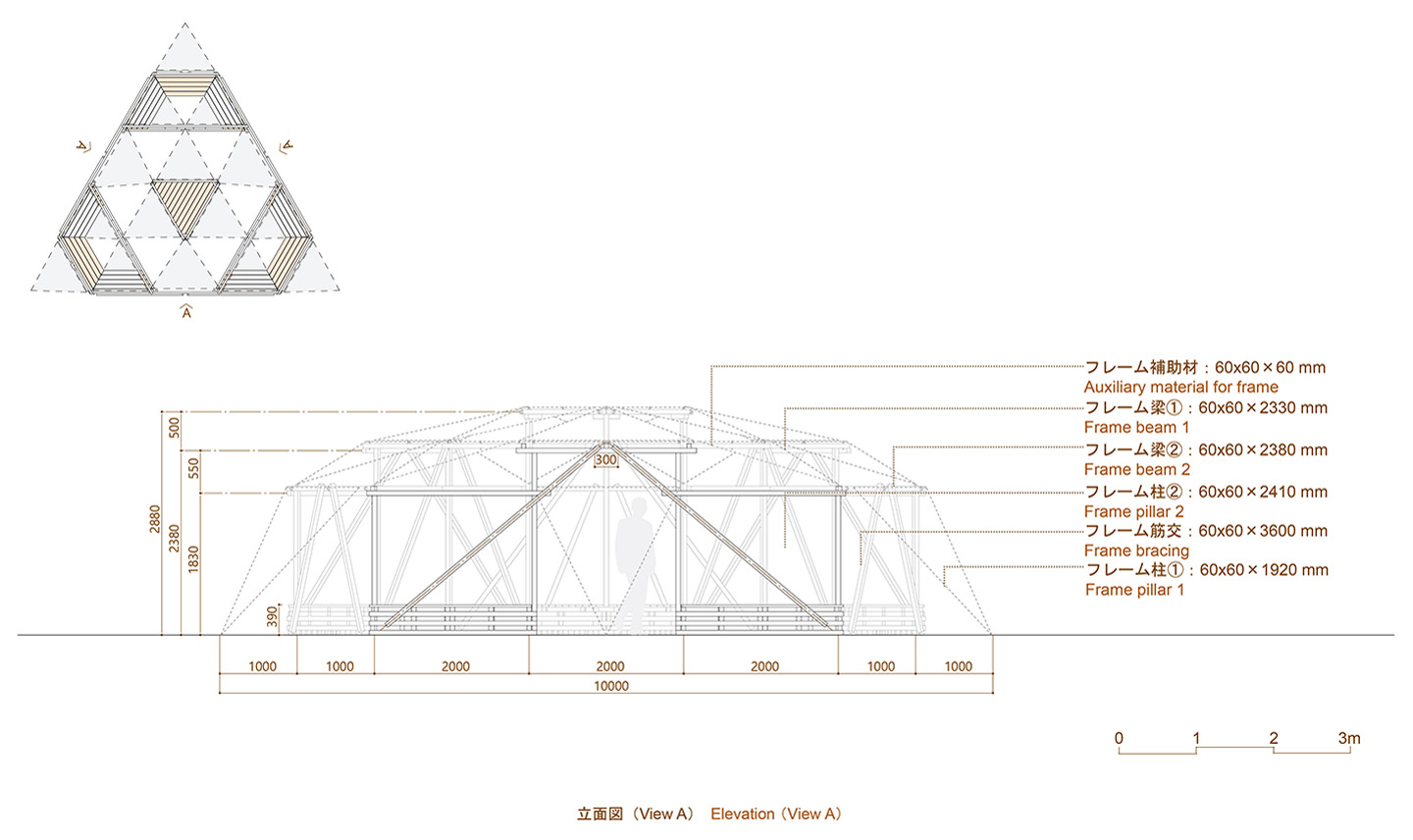
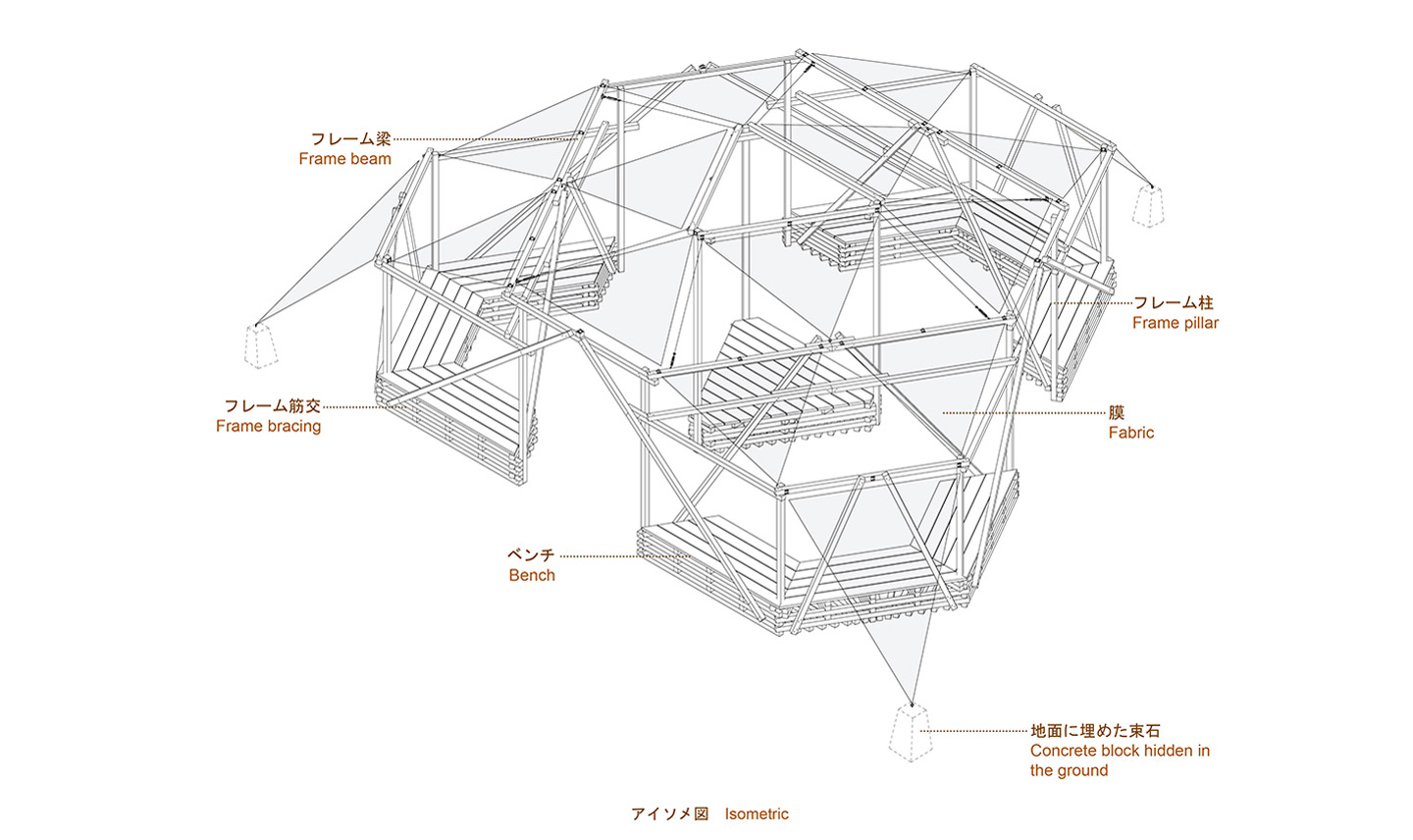
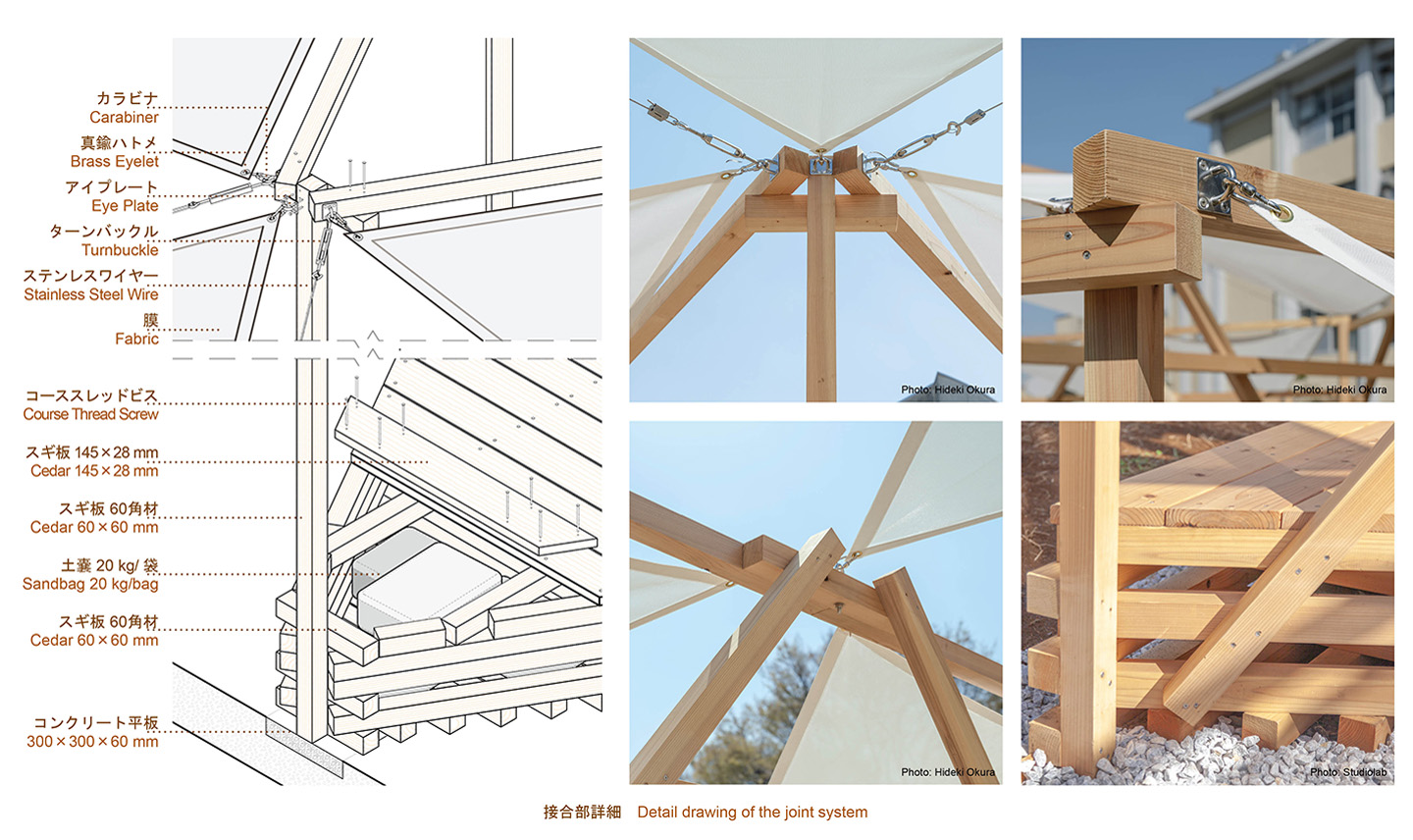
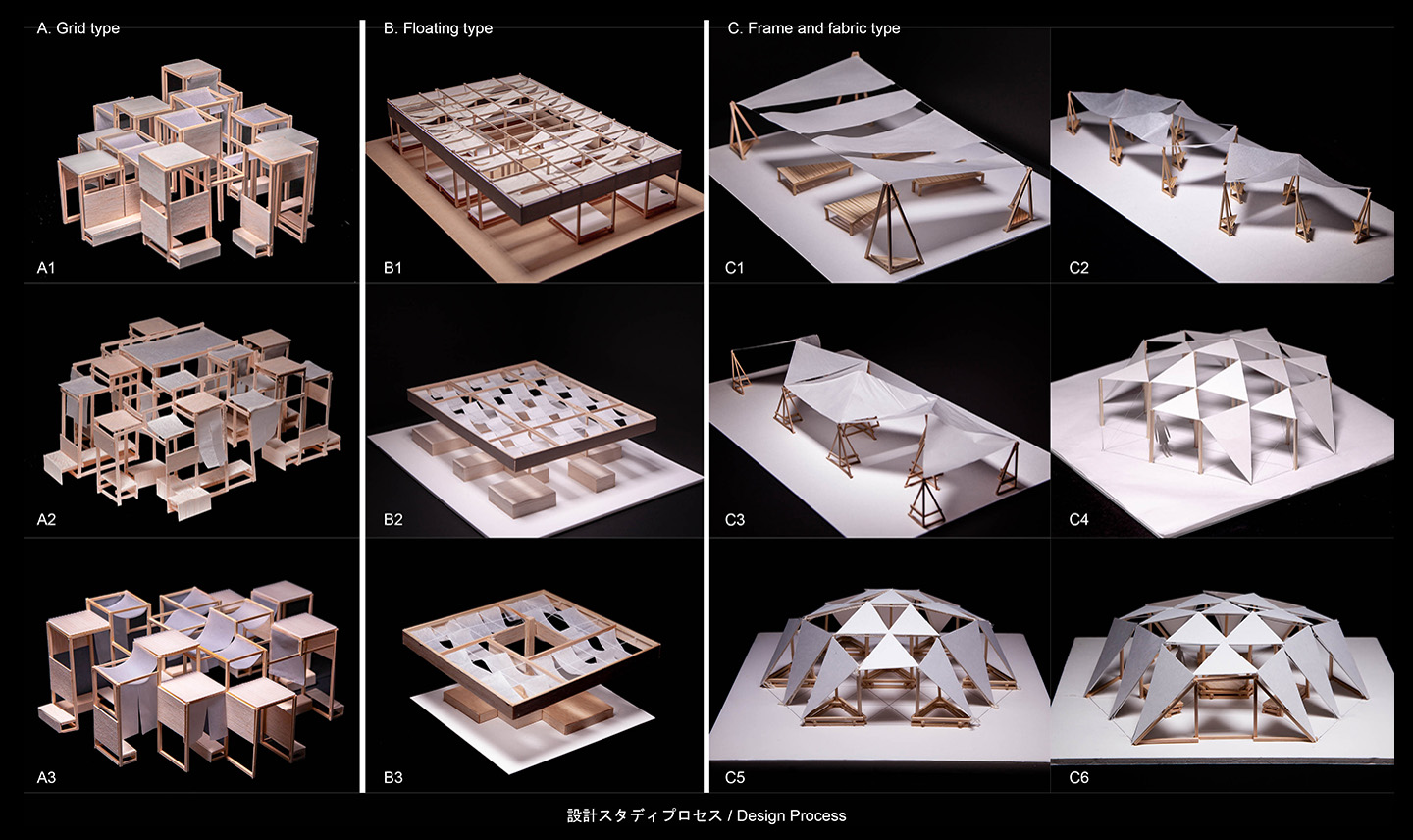
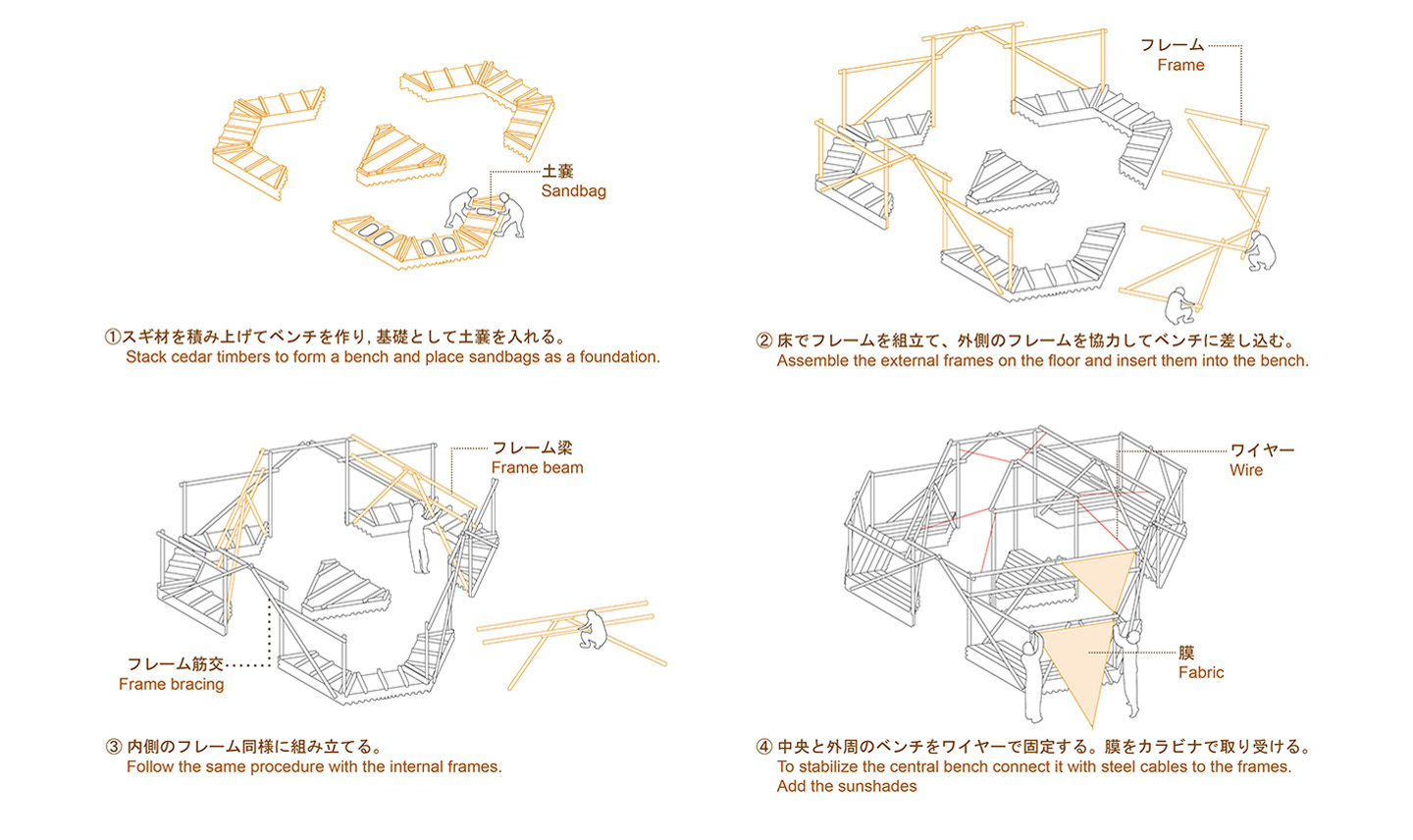
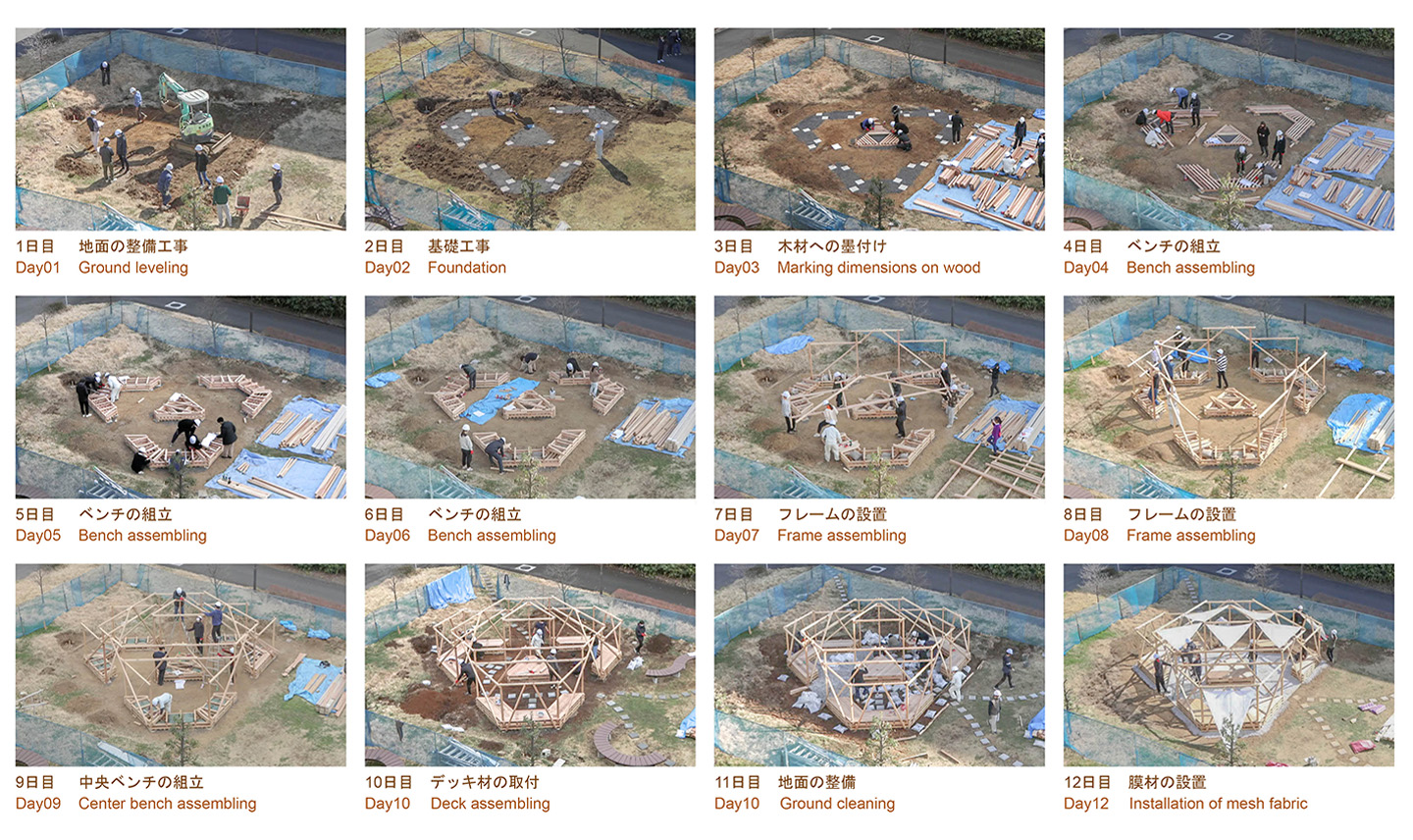
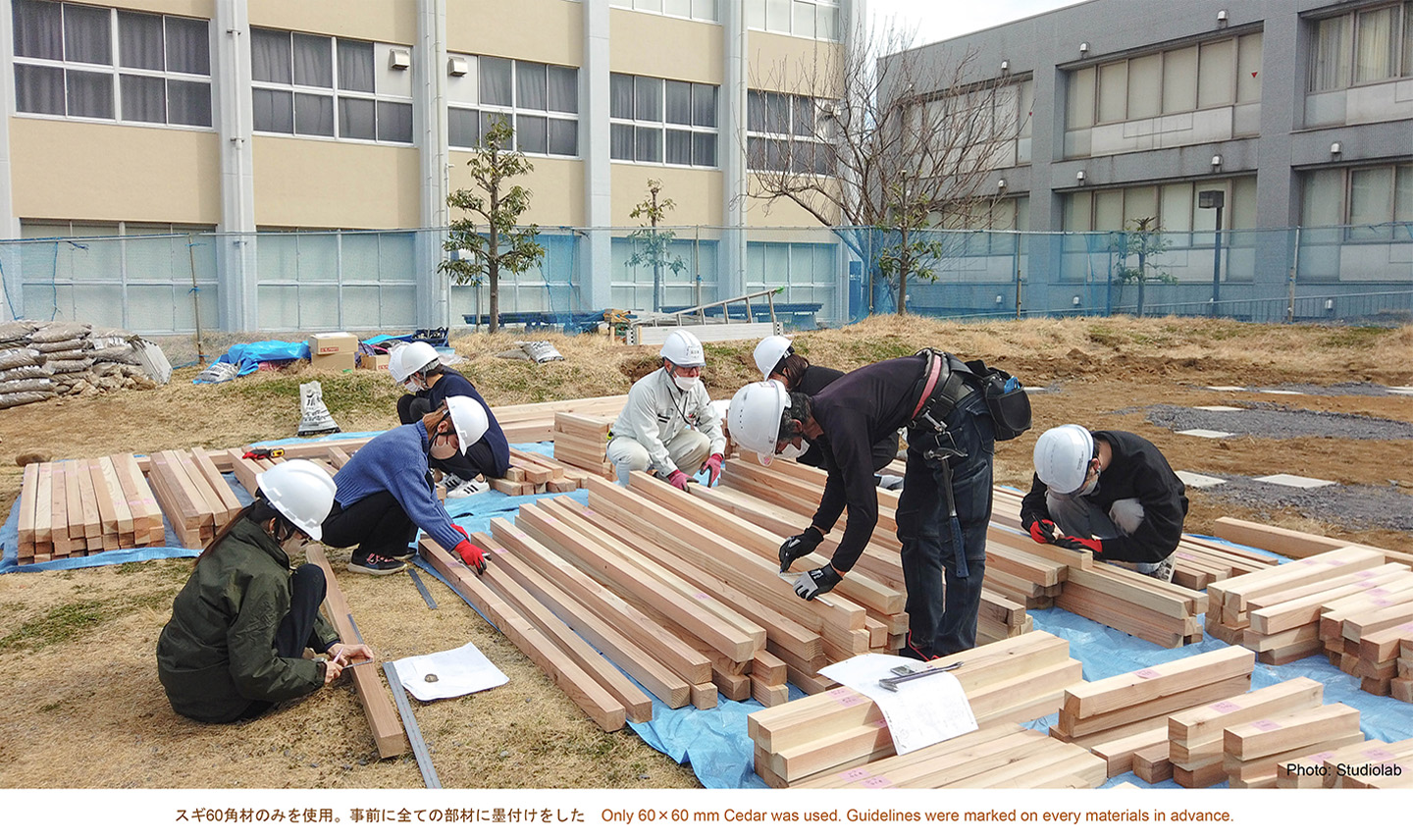
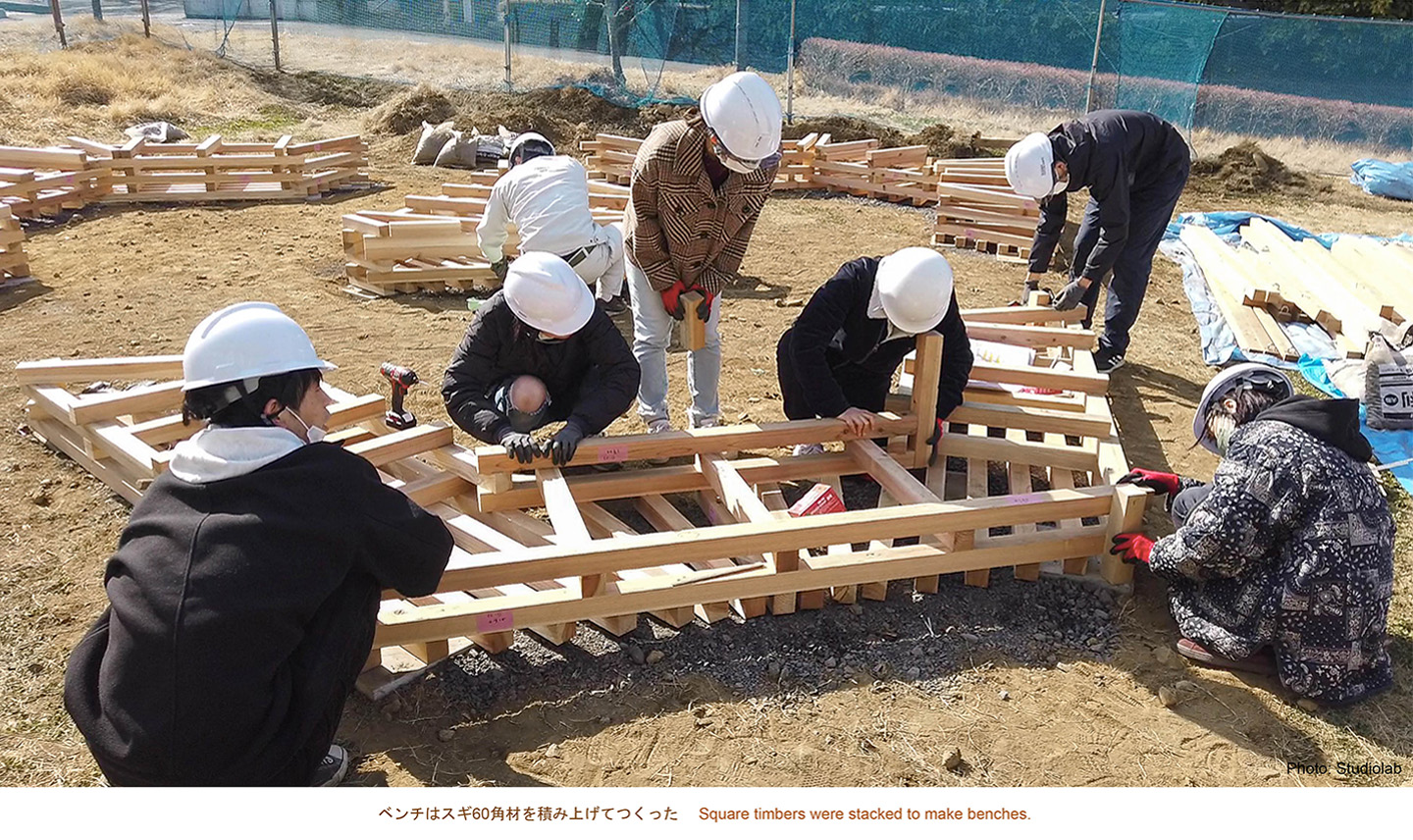
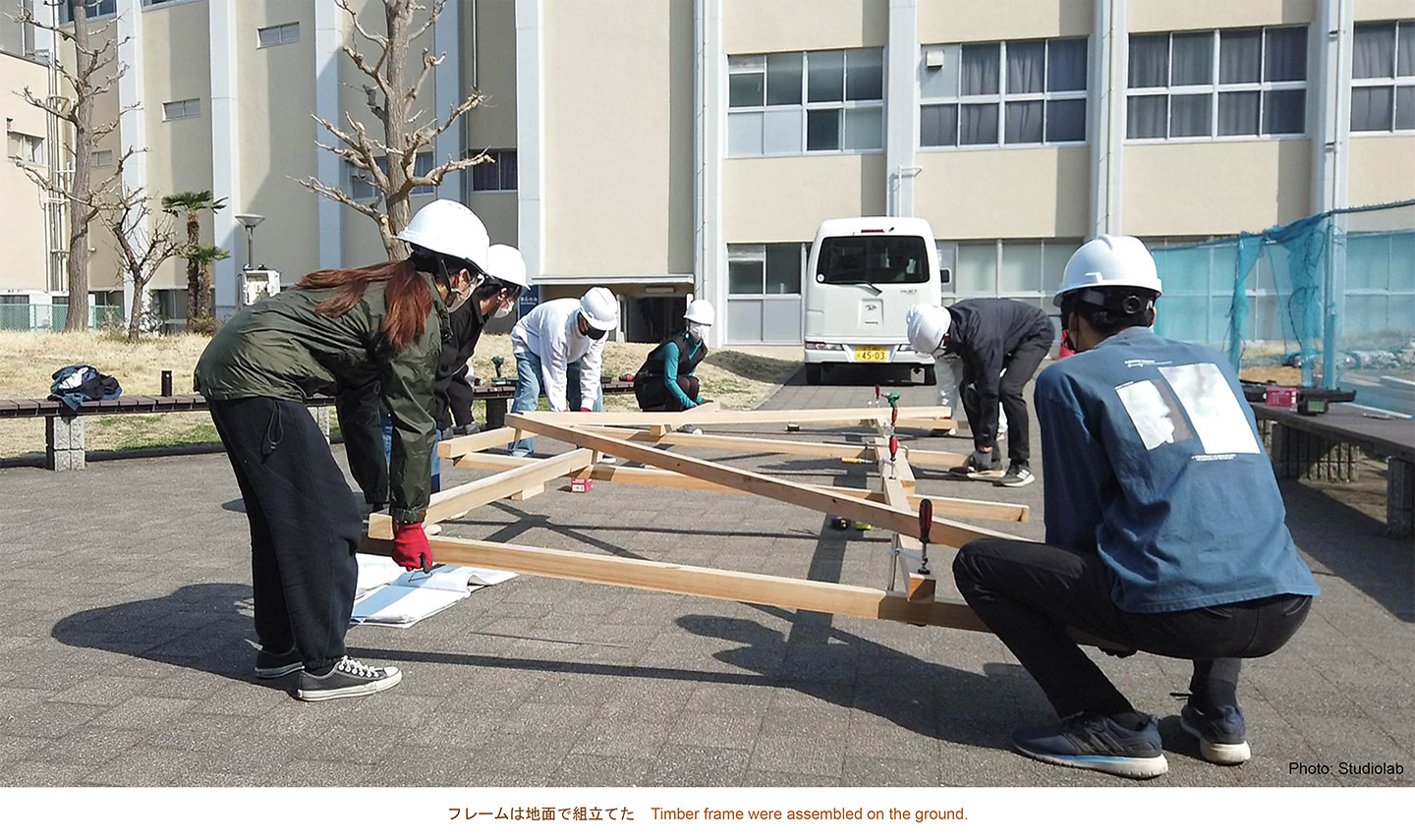
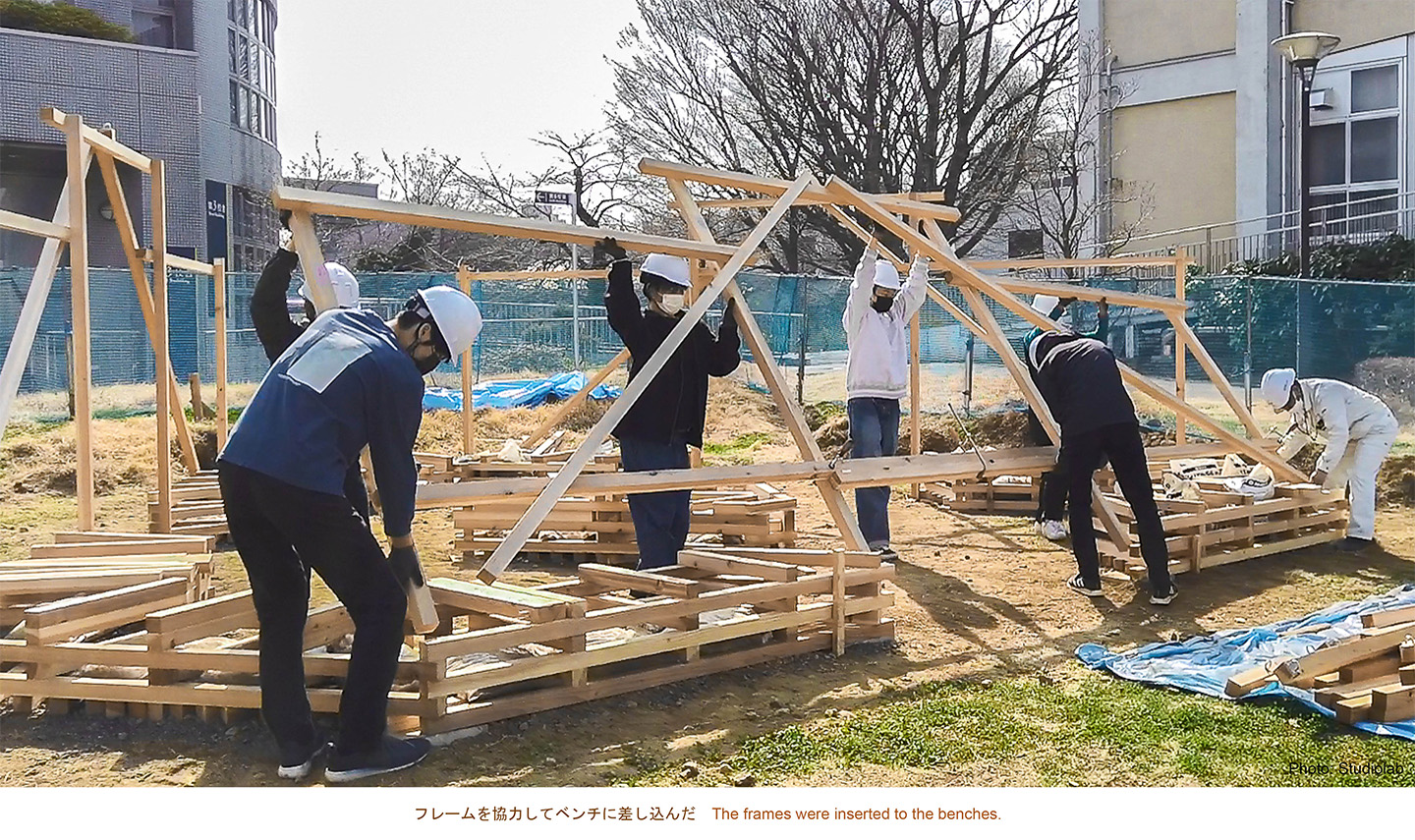
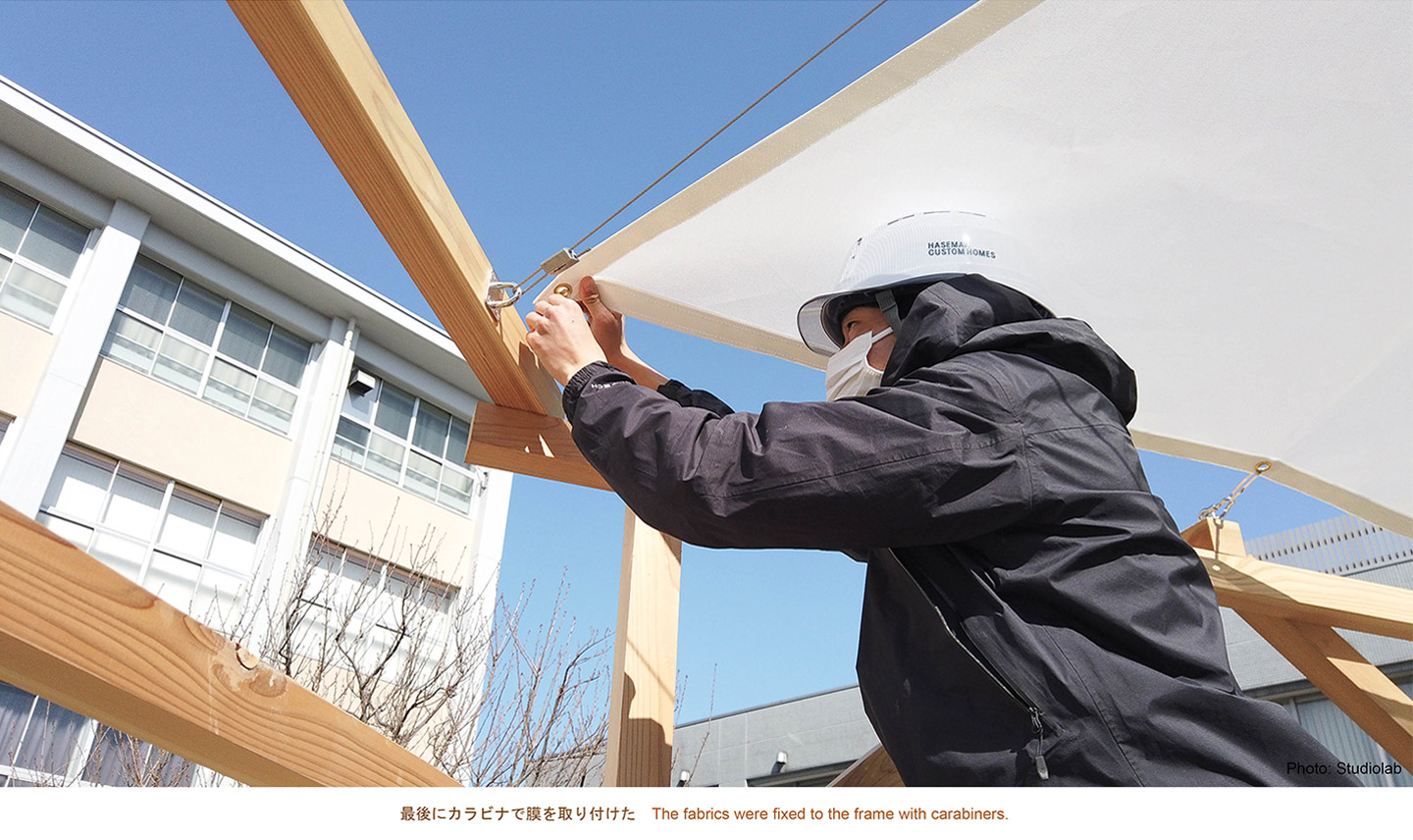
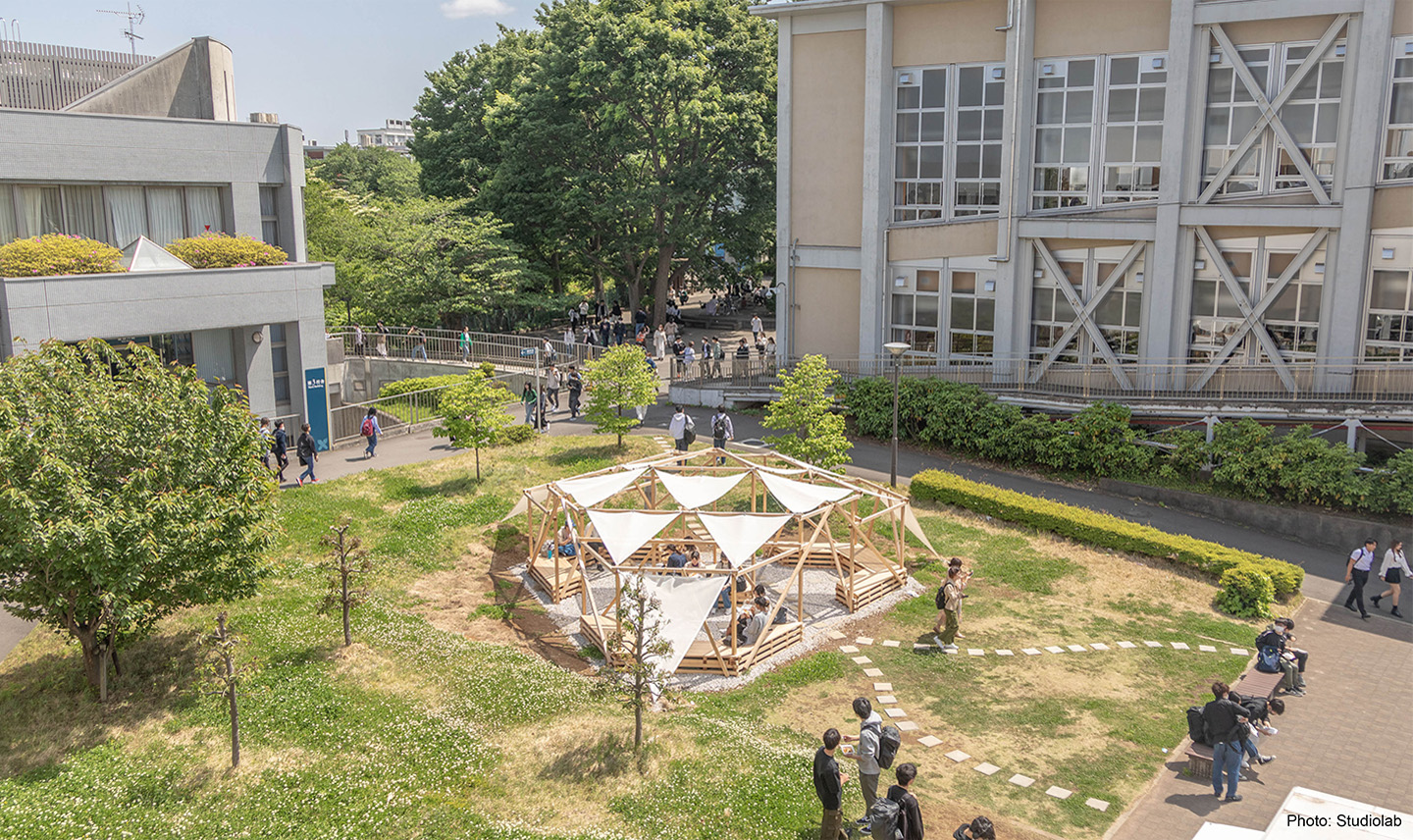
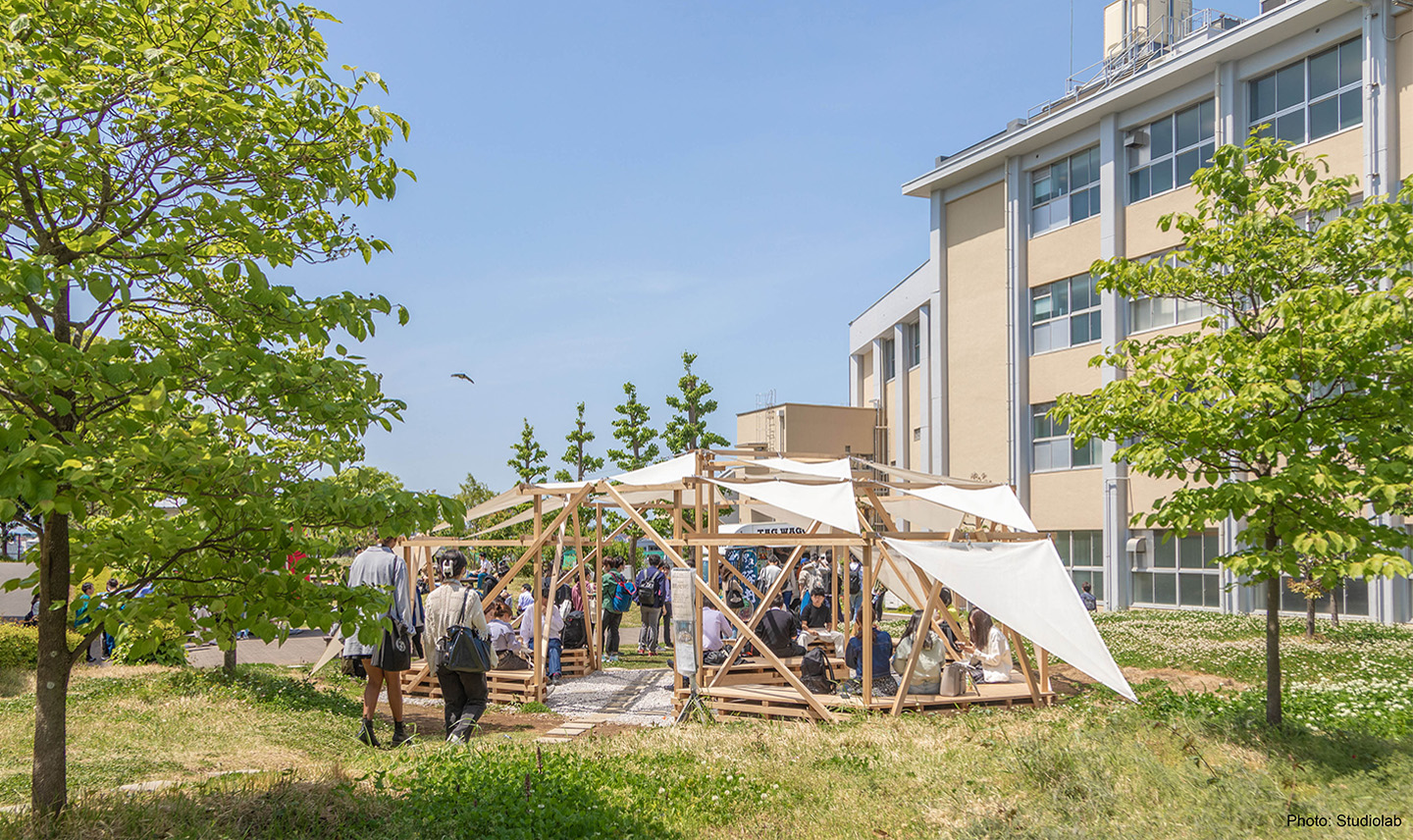
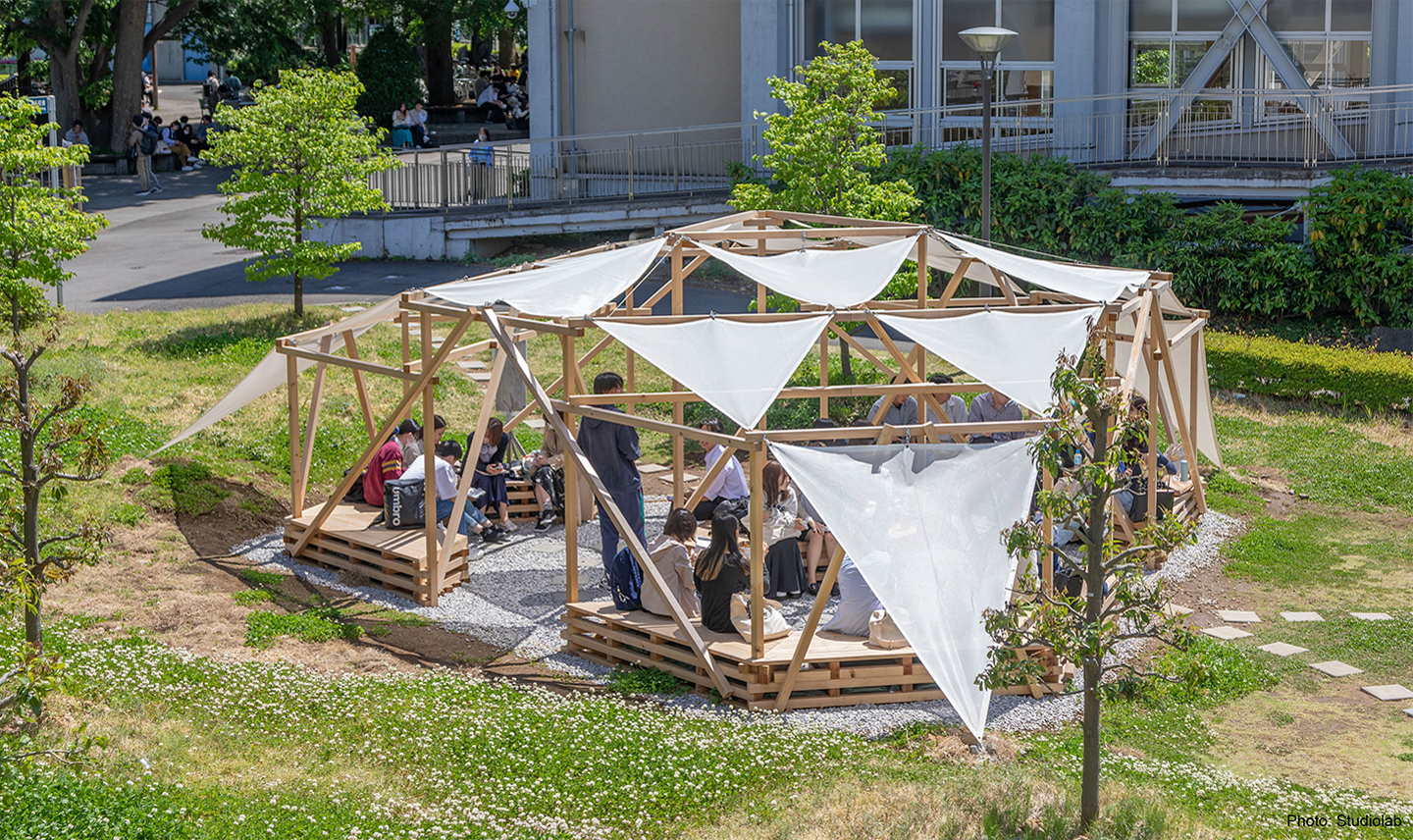
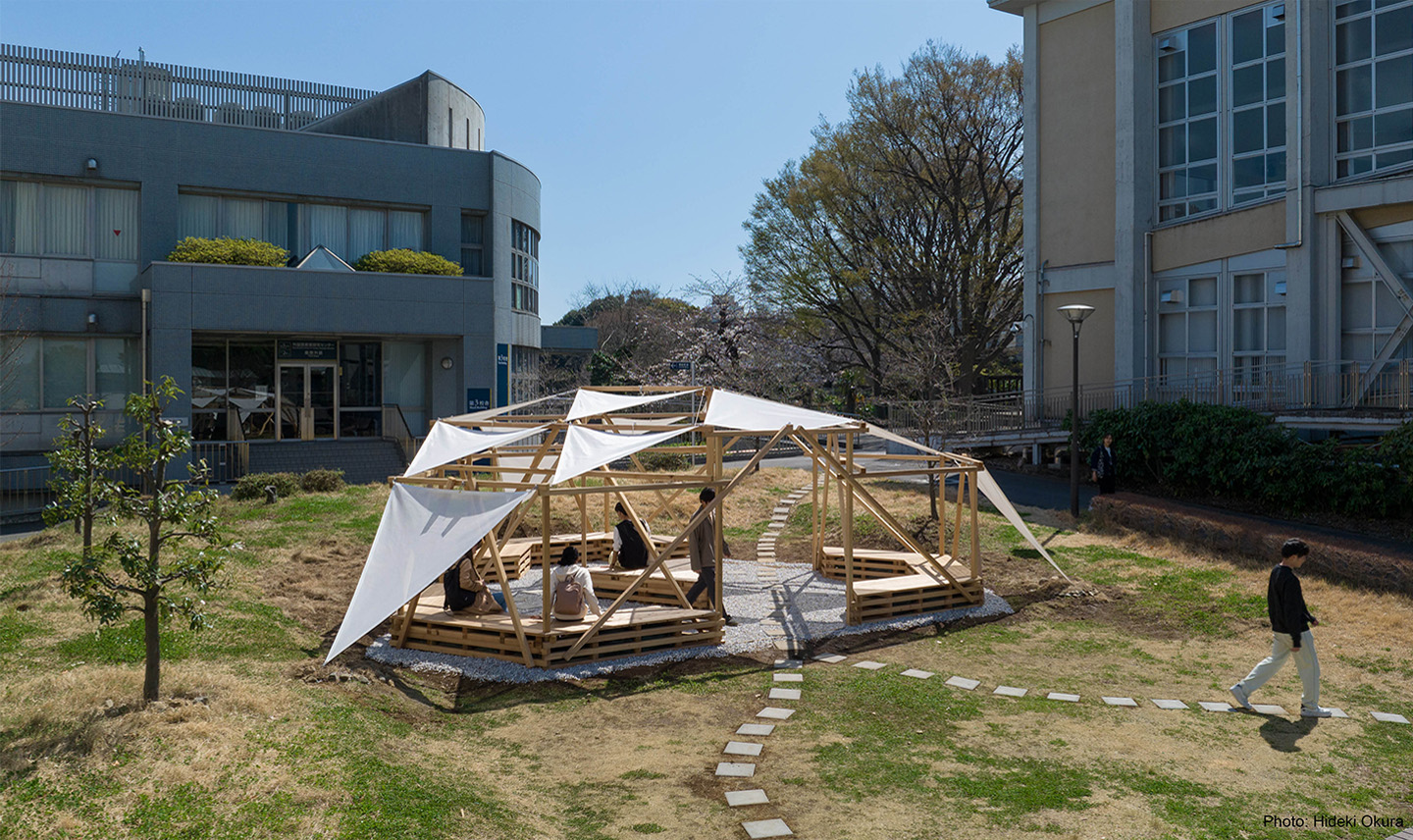
慶應義塾大学日吉キャンパスの屋外空間を活用するための仮設パビリオンのプロジェクトである。パンデミックにより学生が直接会って話す機会が減ったことで, 対面での交流の重要性が高まっている。2022年度からの対面授業の再開を機に, 授業外での交流の場を提案した。長い間空地となっていた第5校舎の跡地を敷地に選定し, 安価で作れる小規模な木造パビリオンをつくった。日吉パビリオンは学生にとっての「憩いの場」であり, そこで屋外利用の効果を確認するための実験も行っている。
基礎の役割を持つベンチを動線に沿って配置し, ベンチ自体にも角度を付け, 利用者同士の会話を誘発する計画とした。その上に木造のフレームを組み, 三角形のメッシュ膜を市松状に配置し, 空間内に柔らかな光と影を落とした。また, 学生が設計・施工・維持管理に参加できる仕組みを取入れた。重機不要となるよう, 1~2名で運べる3.6 m 以下のスギ60角材のみ使用し, 基礎は土嚢で作った。接合はビスのみ, 斜め切削不要としたことで, 施工会社の現場監督指導の下, 12日間の学生参加型施工が実現した。
2023年度4月より学生が実際に利用している。昼休みにはキッチンカーも訪れ, 旧校舎跡地が多くの学生の憩いの場となっている。今回のパビリオンは, 安価な木造の仮設建築の提案により, 空地の活用方法の可能性を示している。
This is a temporary pavilion project that utilizes the outdoor space of Keio University Hiyoshi Campus. As a result of the numerous problems related to the lack of face-to-face interaction between students during the pandemic, there is an increased awareness of the importance of informal interaction. When face-to-face classes resumed in 2022, we proposed a place for interaction outside of the class. Specifically, we selected the site of the former 5th Building, which had been underused for a long time. Our proposal is a small-scale wooden rest facility that can be made at a low cost. Our proposal also serves as an experiment to confirm the positive effect of outdoor use.
The design consists of benches softly covered by fabrics. The shape of benches is designed to induce conversations between users and hide the foundations. We built wooden frames on top of them and covered the space with triangular mesh fabrics arranged in a checkered pattern, casting soft light and shadows. We allowed students to join the design, construction, and management process. To make heavy machinery unnecessary, we used only cedar 60 mm square lumber with a length of 3.6 m or less that can be carried by a few people. Also, the foundation was made of sandbags. By using only screws for joining and eliminating the diagonal cutting, the pavilion was finished in 12 days almost by students.
- Yokohama, Kanagawa, Japan
- Architecture
- Jorge Almazan+Studiolab(Shunsuke Shimizu, Amata Tanahashi, Fumika Okuno, Braiotta Alberto, Keita Suzuki, Johan Kouaho, Yuna Matsuyama, Francesco Brusiani, Lorenzo Conti)
